Saturday, August 22 2020
For our August Round Robin Blog we are discussing what elements do we include in our stories to
make a story seem and feel more realistic to the reader?
ZZZZ
 When Jules Verne wrote 20 Leagues Under the Sea I’m guessing that nothing felt real about that story to the people at the dawn of the last century. Submarines were a very primitive thing at the time, yet Verne describes things that are standard on today’s amazing underwater vessels. A true visionary, Verne foresaw the skyscraper, the submarine, and the airplane, and is now regarded as one of the fathers of science fiction. I imagine it is just as much of a challenge for today’s science fiction and fantasy writers to create places, things and people that don’t yet exist and make them real. When Jules Verne wrote 20 Leagues Under the Sea I’m guessing that nothing felt real about that story to the people at the dawn of the last century. Submarines were a very primitive thing at the time, yet Verne describes things that are standard on today’s amazing underwater vessels. A true visionary, Verne foresaw the skyscraper, the submarine, and the airplane, and is now regarded as one of the fathers of science fiction. I imagine it is just as much of a challenge for today’s science fiction and fantasy writers to create places, things and people that don’t yet exist and make them real.
But for me, with one exception, all my books are contemporary, so I don’t have to create whole new worlds. I just have to be an observant of the world around me and pay attention to current events.
ZZ
But for me, with one exception, all my books are contemporary, so I don’t have to create whole new worlds. I just have to be observant of the world around me and pay attention to current events.
ZZ
 One of the things writers are always told to keep in mind are the five senses: Sight, sound, touch, smell, and taste. When an author incorporates these senses into their writing, they can pull the reader into the scene. For instance: "The acrid stench of burnt flesh seared my nose" – might not be something we have all actually smelled, but we can imagine it because of the descriptive words used. Other more familiar odors can put the reader right into the scene - like the smell of fresh rain steaming on hot tarmac, or the delightful scent of steaks on the barbeque. The antiseptic smell of a hospital corridor, or the diesel fumes of a truck passing by. One of the things writers are always told to keep in mind are the five senses: Sight, sound, touch, smell, and taste. When an author incorporates these senses into their writing, they can pull the reader into the scene. For instance: "The acrid stench of burnt flesh seared my nose" – might not be something we have all actually smelled, but we can imagine it because of the descriptive words used. Other more familiar odors can put the reader right into the scene - like the smell of fresh rain steaming on hot tarmac, or the delightful scent of steaks on the barbeque. The antiseptic smell of a hospital corridor, or the diesel fumes of a truck passing by.
ZZ
 Then there’s touch and things we can feel: The cleansing, muscle relaxing feel of a hot shower, the exciting touch of a lover, the inviting softness of a puppy’s fur. Or overpowering heat that has sweat dripping down the character’s back, or cold so chilly that their head aches with it. The gritty discomfort of walking barefoot over gravel strewn pavement, the brain-splitting throb of a headache. Then there’s touch and things we can feel: The cleansing, muscle relaxing feel of a hot shower, the exciting touch of a lover, the inviting softness of a puppy’s fur. Or overpowering heat that has sweat dripping down the character’s back, or cold so chilly that their head aches with it. The gritty discomfort of walking barefoot over gravel strewn pavement, the brain-splitting throb of a headache.
ZZ
 One can include sights that we’ve all experienced to make a scene real. The endless river of red taillights parading over the next hill of the highway, waves curling up and crashing down in a froth of white foam. Describe a little kid with a chocolate ice cream cone dripping down over his fat little fist and onto his clothes and you can almost taste the smooth, cocoa flavored ice cream itself. One can include sights that we’ve all experienced to make a scene real. The endless river of red taillights parading over the next hill of the highway, waves curling up and crashing down in a froth of white foam. Describe a little kid with a chocolate ice cream cone dripping down over his fat little fist and onto his clothes and you can almost taste the smooth, cocoa flavored ice cream itself.
ZZ
 Which brings us to taste. Back to that steak on the grill – savor the juicy, smoky flavor of the perfectly cooked steak as you bite into it. Um-um-um! Or the bitter wake-me-up cup of black coffee. Instead of just telling the reader that the kid sucked on the lemon, describe the throat tightening, eye-watering, face scrunching effect. The reader will be puckering up with the kid. Which brings us to taste. Back to that steak on the grill – savor the juicy, smoky flavor of the perfectly cooked steak as you bite into it. Um-um-um! Or the bitter wake-me-up cup of black coffee. Instead of just telling the reader that the kid sucked on the lemon, describe the throat tightening, eye-watering, face scrunching effect. The reader will be puckering up with the kid.
ZZ
And lastly there is hearing. The bleat of horns in that endless traffic jam, or the plop of fat raindrops landing on foliage as the summer shower begins.  The creepy sound of footsteps following the character down that alley in the dark, the shuffle, the stopping whenever the character stops, signaling the follower is stalking your guy, can send shivers up the readers back. The bleep of monitors in a hospital room can bring on the angst of having someone you love in that bed, tied to all that life-saving equipment. The creepy sound of footsteps following the character down that alley in the dark, the shuffle, the stopping whenever the character stops, signaling the follower is stalking your guy, can send shivers up the readers back. The bleep of monitors in a hospital room can bring on the angst of having someone you love in that bed, tied to all that life-saving equipment.
ZZ
All these are everyday senses most of us have experienced or can easily imagine so paint the picture – a full rainbow of color, sound, taste, smell and feel.
ZZ
 Now, how do we make the characters themselves feel real? Show your reader how they move, how they speak, how they dress and act. Unless you’re deliberately creating an eccentric, keep it real. If you plan to have a teenager in your story, spend some time listening to them speak. Watch how they move with the awkward gangly, haven’t-grown-into-their new bigger bodies lack of grace. Same goes for a toddler struggling to stay upright as they lurch toward something they want. Or a very old person shuffling down the walk pushing their walker with green tennis balls on the legs. A soldier moves with purpose, a woman on the hunt with swaying hips. Now, how do we make the characters themselves feel real? Show your reader how they move, how they speak, how they dress and act. Unless you’re deliberately creating an eccentric, keep it real. If you plan to have a teenager in your story, spend some time listening to them speak. Watch how they move with the awkward gangly, haven’t-grown-into-their new bigger bodies lack of grace. Same goes for a toddler struggling to stay upright as they lurch toward something they want. Or a very old person shuffling down the walk pushing their walker with green tennis balls on the legs. A soldier moves with purpose, a woman on the hunt with swaying hips.
ZZ
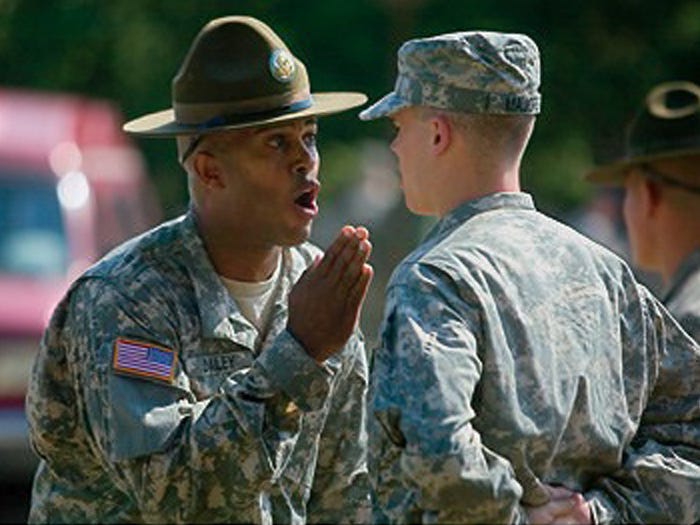 Dialog is equally important. If you plan to have a soldier or a sailor in your story, unless he or she is Frank Burns or Gomer Pyle, they are not likely to use expressions like golly gee willikers. Use dialog that fits the character. A five-year-old will not speak like a ten-year-old. A teenager has a vocabulary all their own and a drill sergeant will cuss. (If you don’t want to use actual cuss words, at least let the reader know the character cussed.) Men tend to speak in short, direct sentences while women weave in all kinds of additional information, some of it quite irrelevant. If you’re at the grocery store waiting in line watch how a harried mother deals with a fractious child who’s been told no about the candy display. Everywhere you go there are people who speak and act differently than you would so be a people watcher, take notes – mental or for real – and use these ideas for the characters in your books. So, how a character moves, how they speak and how they think help to make the story real. Dialog is equally important. If you plan to have a soldier or a sailor in your story, unless he or she is Frank Burns or Gomer Pyle, they are not likely to use expressions like golly gee willikers. Use dialog that fits the character. A five-year-old will not speak like a ten-year-old. A teenager has a vocabulary all their own and a drill sergeant will cuss. (If you don’t want to use actual cuss words, at least let the reader know the character cussed.) Men tend to speak in short, direct sentences while women weave in all kinds of additional information, some of it quite irrelevant. If you’re at the grocery store waiting in line watch how a harried mother deals with a fractious child who’s been told no about the candy display. Everywhere you go there are people who speak and act differently than you would so be a people watcher, take notes – mental or for real – and use these ideas for the characters in your books. So, how a character moves, how they speak and how they think help to make the story real.
ZZ
 If you’re a woman writing a male character, I suggest you read books written by men with strong male protagonists and pay attention to the way they think because you want to be real when you’re in your hero’s head. Same goes for a man writing a female character. And one last comment here – no one is all BAD or all GOOD. Make sure your characters have flaws and hang-ups. Even the mafia hit-man loves his mother and the devoted father can flip out when his kids don’t do their chores. A law enforcement officer might be an extraordinary individual physically, but give them an emotional hang-up. Something from their past that haunts them and could influence the decisions he or she makes. Susie is the most generous, caring person in the world, but she’s annoyingly OCD. Flaws make our characters human and thus, real. If you’re a woman writing a male character, I suggest you read books written by men with strong male protagonists and pay attention to the way they think because you want to be real when you’re in your hero’s head. Same goes for a man writing a female character. And one last comment here – no one is all BAD or all GOOD. Make sure your characters have flaws and hang-ups. Even the mafia hit-man loves his mother and the devoted father can flip out when his kids don’t do their chores. A law enforcement officer might be an extraordinary individual physically, but give them an emotional hang-up. Something from their past that haunts them and could influence the decisions he or she makes. Susie is the most generous, caring person in the world, but she’s annoyingly OCD. Flaws make our characters human and thus, real.
ZZ
 And my last tip here is current events. If you are writing contemporary, pay attention to what’s going on in the world around you. Everyone loves the Christmas Hallmark movies, but let’s get real, they are a little over the top with touchy feely stuff and the troubles of our world rarely intrude. If you want your story to be real, include the things that everyone is experiencing, things on the front page of papers, things on social media. If anyone writes a book set in 2020 and there is no mention of protests, violence, targeting cops, Covid 19, masks, or the upcoming election and all the grief these things have heaped on us, then the story just won’t feel And my last tip here is current events. If you are writing contemporary, pay attention to what’s going on in the world around you. Everyone loves the Christmas Hallmark movies, but let’s get real, they are a little over the top with touchy feely stuff and the troubles of our world rarely intrude. If you want your story to be real, include the things that everyone is experiencing, things on the front page of papers, things on social media. If anyone writes a book set in 2020 and there is no mention of protests, violence, targeting cops, Covid 19, masks, or the upcoming election and all the grief these things have heaped on us, then the story just won’t feel  real. Set a story in Florida in the late summer or early fall with no mention of a hurricane churning in the gulf - it won’t seem real. If you’re setting a scene in a grocery store and never notice the masks or the directions on where to stand, it won’t feel like 2020. If you are driving down the street in October of an election year there will be political posters everywhere. So, include them. They make the scene real, and add depth and color to your trip to the store. Some signs might get the character’s dander up, or just make them shake their head at the absurdity of it all, but either way, it helps the reader to relate to the character. real. Set a story in Florida in the late summer or early fall with no mention of a hurricane churning in the gulf - it won’t seem real. If you’re setting a scene in a grocery store and never notice the masks or the directions on where to stand, it won’t feel like 2020. If you are driving down the street in October of an election year there will be political posters everywhere. So, include them. They make the scene real, and add depth and color to your trip to the store. Some signs might get the character’s dander up, or just make them shake their head at the absurdity of it all, but either way, it helps the reader to relate to the character.
ZZ
 If a writer incorporates things everyone, or most everyone has experienced, then the reader is right there in the scene, feeling it, hearing it, smelling it, touching it and feeling like It’s real. You’ve had clammy hands when you’ve been nervous. You’ve felt the frustration of that traffic jam. And you’ve cussed when pushed to the breaking point. So you can relate to the character who experiences these things. I leave you with one final caution – SHOW don’t tell. If you tell the reader that the kid was crying hard that doesn’t bring the same visceral response that “The boy’s chest heaved with anguish and fat tears ran down his face, leaving wet trails” does. If a writer incorporates things everyone, or most everyone has experienced, then the reader is right there in the scene, feeling it, hearing it, smelling it, touching it and feeling like It’s real. You’ve had clammy hands when you’ve been nervous. You’ve felt the frustration of that traffic jam. And you’ve cussed when pushed to the breaking point. So you can relate to the character who experiences these things. I leave you with one final caution – SHOW don’t tell. If you tell the reader that the kid was crying hard that doesn’t bring the same visceral response that “The boy’s chest heaved with anguish and fat tears ran down his face, leaving wet trails” does.
ZZ
 So, enough of my thoughts – lets go see what these other Round Robin Bloggers have to offer to make their writing seem real. So, enough of my thoughts – lets go see what these other Round Robin Bloggers have to offer to make their writing seem real.
Connie VinesZ
Victoria Chatham
Judith Copek
Diane Bator
Dr. Bob Rich
Beverley Bateman
Fiona McGier
Rhobin L Courtright
Saturday, July 25 2020
August's Round Robin Blog asks the question: How do you develop a character who is different in personality from all the other characters you have developed, or from yourself?
XX
 This question made me scratch my head because I was hoping ALL my characters are different. Different from me and from each other. But as I thought it through I realize there are bits of me in all my characters. I created them, after all, so it makes sense that this one favors chocolate ice cream and another is a night owl. One has kids, another spent two years in the Peace Corps. One is impatient, or politically conservative, a Catholic, or one might like to jump out of perfectly good airplanes. But beyond those hints of me that peek through, I really do try to make all my characters different and memorable in their own ways. This question made me scratch my head because I was hoping ALL my characters are different. Different from me and from each other. But as I thought it through I realize there are bits of me in all my characters. I created them, after all, so it makes sense that this one favors chocolate ice cream and another is a night owl. One has kids, another spent two years in the Peace Corps. One is impatient, or politically conservative, a Catholic, or one might like to jump out of perfectly good airplanes. But beyond those hints of me that peek through, I really do try to make all my characters different and memorable in their own ways.
XX
Early on as a newbie writer I kept hearing the advice, “write what you know.” But even that had to be taken with a shaker full of salt. If every one of my characters had the same career that I was personally familiar with my books and stories would get boring really fast. So, I began to pick other occupations that I had friends or relatives in whose brains I could pick. Then I reached out to folk in entirely different fields. Research and reading is al ways required when sitting down to write a story. Unless all your stories are set in the same town you’ve lived in for years and perhaps even grew up in, and all your characters work at the same job, shop in the same stores and have the same hobbies, eventually you have to do the research. ways required when sitting down to write a story. Unless all your stories are set in the same town you’ve lived in for years and perhaps even grew up in, and all your characters work at the same job, shop in the same stores and have the same hobbies, eventually you have to do the research.
XX
One book on my shelf is from the Careers for your Characters that includes a lot of initial information to help you choose a career for your new character. But then, if you think perhaps he should be a dentist, you might want to visit your dentist’s office and ask questions, look around, take a few photos of equipment, ask the names of things etc. Not everyone who reads your book will have any more familiarity with the dentist’s office than what they see while stretched out in his chair with their mouth open, but you can bet someone will be a hygienist or married to a dentist and they’ll catch any mistakes you made.
XX
Another book I refer to often when creating characters is the Birth Order Book. There are always exceptions, but the influences having older or younger siblings and where in the order your character fits, and their gender makes a difference in the person they become as adults. Depending on the characteristics you want your people to have, you might give them siblings that enhance those tendencies.
XX
Then there is the: A Writer’s Guide series: The Emotional Wound Thesaurus, The Positive Trait Thesaurus, The Negative Trait The saurus, and others where you can find dozens of ideas on things that inform who your character is and why he or she does the things they do. saurus, and others where you can find dozens of ideas on things that inform who your character is and why he or she does the things they do.
XXXX
I’m betting all writers are people watchers – standing in line at the grocery check-out, waiting for a flight at the airport, in a doctor’s waiting room, on the curb watching a parade, eating in a restaurant – just about anywhere you find yourself with a few minutes unoccupied by other concerns, you can watch how people react to different situations. How the clerk behind the counter copes with an angry traveler, how a mom with a cranky toddler deals with the tears, a child jumping with excitement when the clown strides by on stilts, a couple trying to argue without drawing attention at the  next table over. All these people are not you and they all have different ways of coping, of reacting and have different views of the world and the people in it. So people watching is an excellent way to gather fodder for your character creation files. next table over. All these people are not you and they all have different ways of coping, of reacting and have different views of the world and the people in it. So people watching is an excellent way to gather fodder for your character creation files.
XX
My first two books were inspired and written because of things my brother experienced during and after his return from Vietnam (The Candidate and Worry Stone) so there is a lot of Scotty in them, but I also read dozens of other books like The 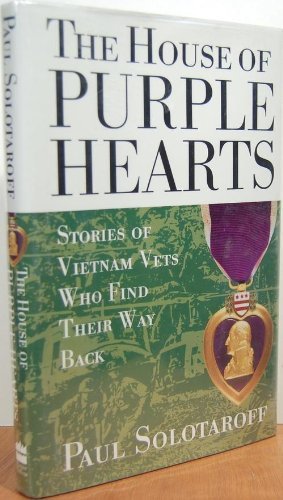 Things They Carried by Tim O’Brien and The House of Purple Hearts by Paul Solotaroff to better understand the grief, disillusionment and anger those men endured. It wasn’t enough to read about current day soldiers because the way our country treated those returning heroes was far different from today and I needed to know those differences to get those stories right. Things They Carried by Tim O’Brien and The House of Purple Hearts by Paul Solotaroff to better understand the grief, disillusionment and anger those men endured. It wasn’t enough to read about current day soldiers because the way our country treated those returning heroes was far different from today and I needed to know those differences to get those stories right.
XX
My contemporary romance series was a far less demanding task because I’d fallen in love, broken up, been married, been hurt, met new loves and found my happy ever after moments. But my new series has been a total challenge, even the setting which happens to be a real place, the county and town where I live. I decided to write a heroine in law enforcement. Now, I have zero experience with law enforcement beyond a couple parking tickets so I had to start at the beginning. Watching Law & Order or Blue Bloods on TV does not give you a solid place to write from either. Partly because they have to solve a murder or a rape and get it to the DA in one hour so you don’t see the long slog in between the inciting event and the resolution, only the high points. Or get even a hint of the mountain of paperwork they deal with. So where, did I begin? . . .
XX
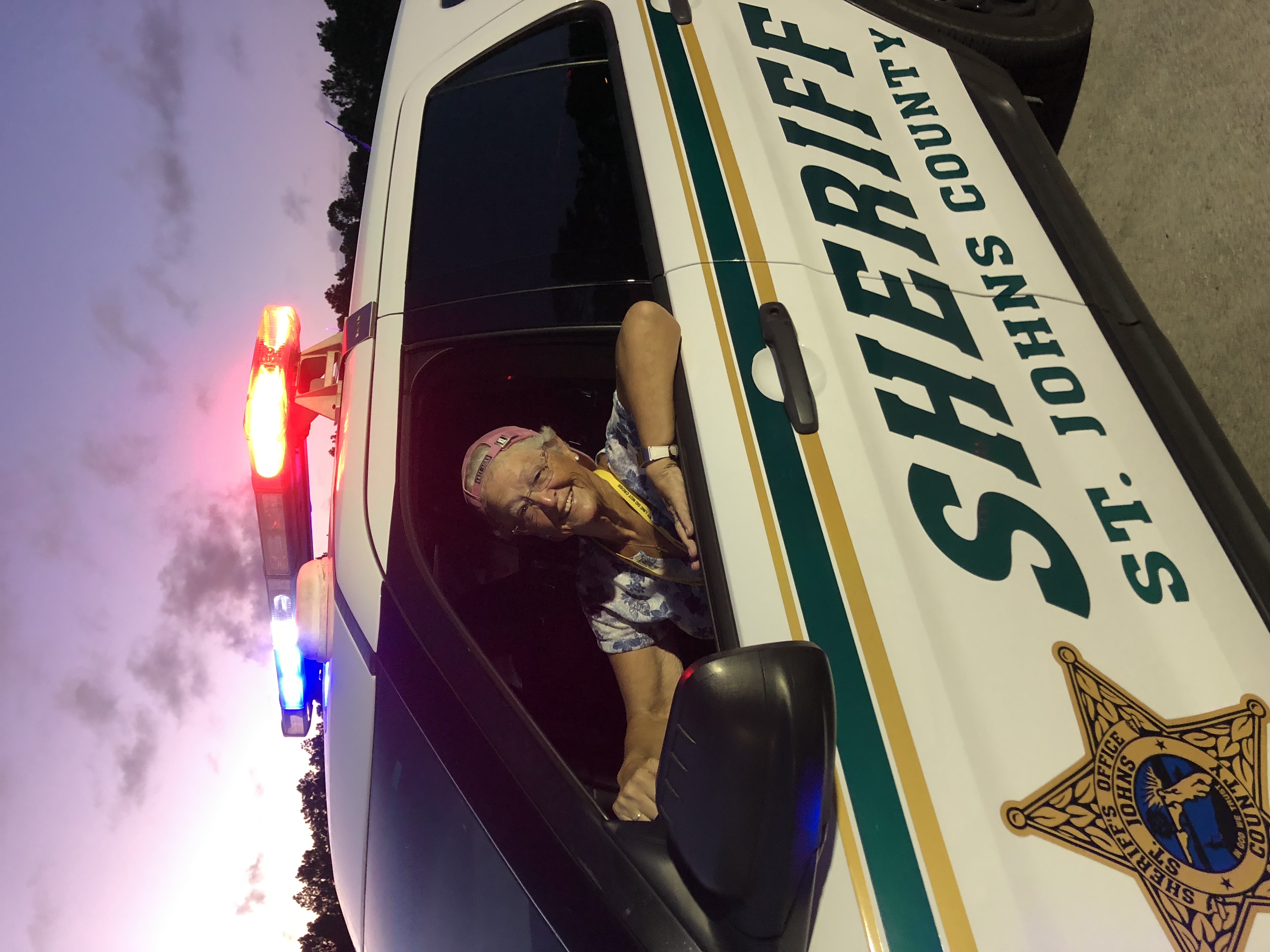 With the Citizens Law Enforcement Academy. Well, actually, I applied for a ride-along first and it was incredibly informative. The deputy I was assigned was everything we all hope for in a model cop: patient, knowledgeable, experienced, helpful, resourceful and effective in all the encounters we had during that 7 hour shift. Aware that I was an author seeking to make my characters real, he shared some of his past experiences with me and anecdotes from all areas of police work. Then I signed up for CLEA – a 12-week course that included everything from the hierarchy and budget of the sheriff’s office to specialized units and equipment. We visited the gun range and handled a weapon, watched K-9s at work, and stepped into a building with a simulator that could put a trainee in any of hundreds of real life situations and demand reactions. We did play-acting for traffic stops and learned how tazers work, climbed aboard the mobile command unit and spent time in communications, listening to dispatchers, callers and deputies in the field. I asked for a second ride-along with a female deputy and learned more about the specifics a woman in law enforcement faces from another great representative from my local sheriff’s office, a woman who had tested for sergeant and got her promotion a week after I got to ride with her and her K-9 Ryker. With the Citizens Law Enforcement Academy. Well, actually, I applied for a ride-along first and it was incredibly informative. The deputy I was assigned was everything we all hope for in a model cop: patient, knowledgeable, experienced, helpful, resourceful and effective in all the encounters we had during that 7 hour shift. Aware that I was an author seeking to make my characters real, he shared some of his past experiences with me and anecdotes from all areas of police work. Then I signed up for CLEA – a 12-week course that included everything from the hierarchy and budget of the sheriff’s office to specialized units and equipment. We visited the gun range and handled a weapon, watched K-9s at work, and stepped into a building with a simulator that could put a trainee in any of hundreds of real life situations and demand reactions. We did play-acting for traffic stops and learned how tazers work, climbed aboard the mobile command unit and spent time in communications, listening to dispatchers, callers and deputies in the field. I asked for a second ride-along with a female deputy and learned more about the specifics a woman in law enforcement faces from another great representative from my local sheriff’s office, a woman who had tested for sergeant and got her promotion a week after I got to ride with her and her K-9 Ryker.
XX
 Thus, Jesse Quinn was born. A very different person from myself or from any of my previous characters. Jesse grew up in a very different life than I had experienced and she had committed herself to a career field nothing like my own. Even her relationships different than mine. If I had a man like Seth Cameron trying to woo me, I’d have been all in – that’s my personality, but Jesse keeps him at arm’s length. We’re both moms, so I suppose we both have the worry of being a single parent in common, but the personalities of her kids are different from my real-life kids so the way we interact is different as well. But again, people watching helps me develop these very different characters and interactions and make them unique. Thus, Jesse Quinn was born. A very different person from myself or from any of my previous characters. Jesse grew up in a very different life than I had experienced and she had committed herself to a career field nothing like my own. Even her relationships different than mine. If I had a man like Seth Cameron trying to woo me, I’d have been all in – that’s my personality, but Jesse keeps him at arm’s length. We’re both moms, so I suppose we both have the worry of being a single parent in common, but the personalities of her kids are different from my real-life kids so the way we interact is different as well. But again, people watching helps me develop these very different characters and interactions and make them unique.
XX
So, that’s how I create different characters, but I’m eager to visit these other authors and see if I can pick up some new tips from them. Why not come along with me?
XX
Diane Bator 
Anne Stenhouse
Connie Vines
Dr. Bob Rich
Helena Fairfax
Beverley Bateman
Rhobin L Courtright
Fiona McGier
Saturday, June 27 2020
This month's Round Robin Blog Hop asks the question - Do you have any charming, likable villains?
 XXX XXX
Every once in a while we come upon a villain who is portrayed as charming, likeable, and relatable. As an author we are often reminded that our villains need to have some saving attributes because no one is all bad. An example often being a Mafia hit man who kills without turning hair, yet has a soft spot for his mom. Maybe you’ve run into a totally irascible old man, who is mean to his wife and yells at the kids in the neighborhood, but who can’t bear to see an animal hurt. But what about the villain who really does capture your sympathy?
XXX
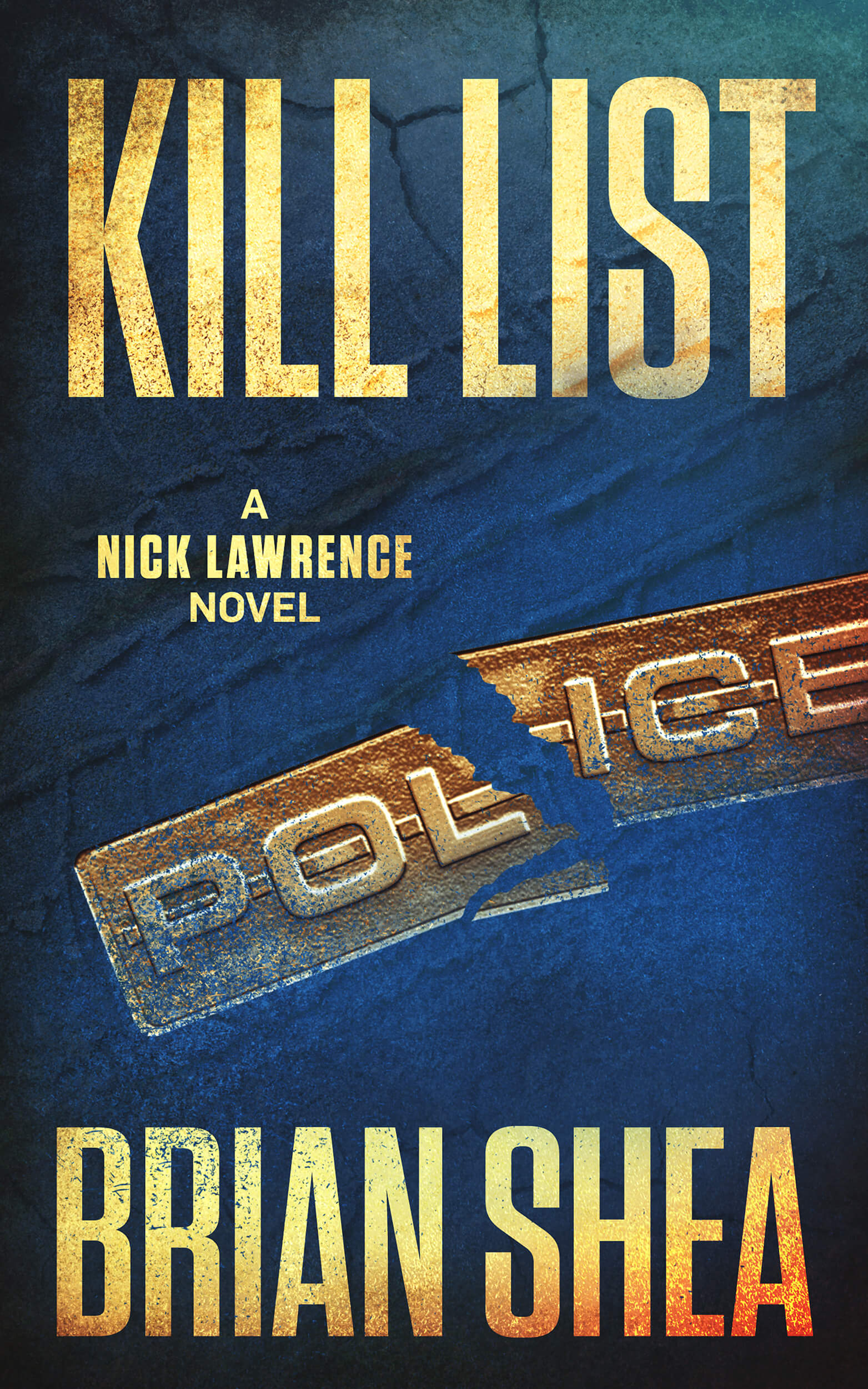 Kill List by Brian Shea has just such a character. The hero is FBI Special Agent Nick Lawrence just transferred to the bank robbery unit. The villain is Declan Enright – he’s the bank robber. But he’s also a former police officer, recently fired over a controversial shooting, and he has reached his breaking point. Confronted with insurmountable financial burdens in the wake of his early termination, Declan is desperate for a way to provide for his wife and three daughters. Tapping into an elite skill set forged during his time as a Navy special warfare operator, and using the insider knowledge of a former police officer, Declan crosses the threshold and commits the perfect crime. Kill List by Brian Shea has just such a character. The hero is FBI Special Agent Nick Lawrence just transferred to the bank robbery unit. The villain is Declan Enright – he’s the bank robber. But he’s also a former police officer, recently fired over a controversial shooting, and he has reached his breaking point. Confronted with insurmountable financial burdens in the wake of his early termination, Declan is desperate for a way to provide for his wife and three daughters. Tapping into an elite skill set forged during his time as a Navy special warfare operator, and using the insider knowledge of a former police officer, Declan crosses the threshold and commits the perfect crime.
XXX
When you are in Declan’s point of view, you feel his desperation and the hurt of what has happened to him. You watch him case the joint and plan his heist and you are rooting for him. You are as desperate as he is that he will succeed. But then Nick is assigned to the case, and begins closing in. I won’t tell you how it ends because you really need to read the book, but when a series of terrorist attacks rattles the nation, these two men end up on the same side just as desperate to prevent the next attack. Two engaging characters, both working to stop an unthinkable evil and the entire time you are wondering how the heck is Declan going to get out of going to jail when it’s over?
XXX
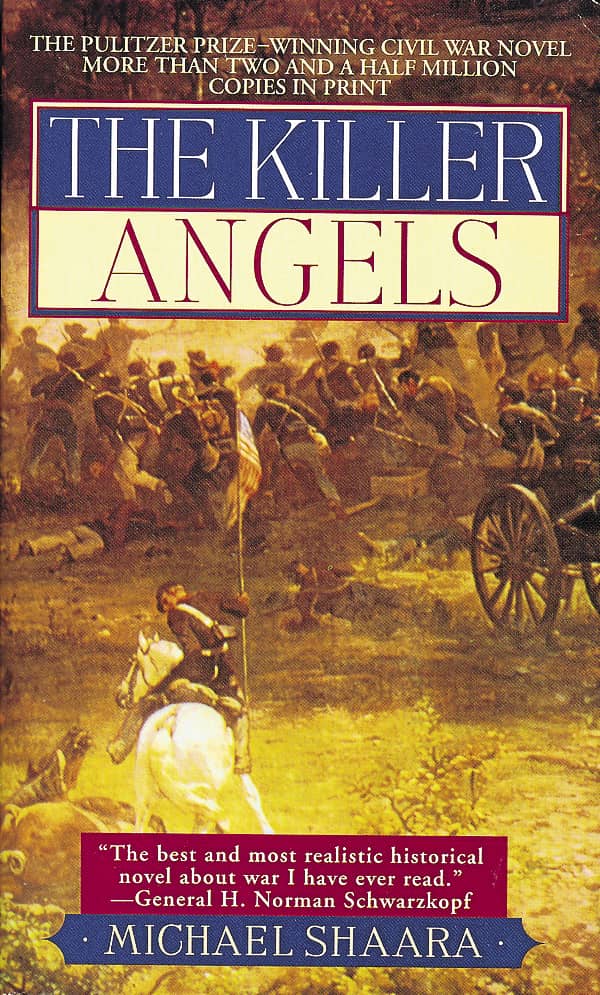 Years ago I read Killer Angels by Michael Shaara. Technically a novel because he put thoughts into the character’s heads and words into their mouths, but it is history, too. A thoroughly researched telling of the four days of the Battle of Gettysburg. But what Shaara has done is tell the story from both sides. What few of us think about is that the men who led from both sides were just a few short years before in the same army. They had attended West Point together. They were friends and fellow soldiers. But the Civil war divided their loyalties and Shaara fills us with that anguish that came. It depends on who’s side you’re on in that war which man is the villain. Lewis Armistead and Winfield Scott Hancock Years ago I read Killer Angels by Michael Shaara. Technically a novel because he put thoughts into the character’s heads and words into their mouths, but it is history, too. A thoroughly researched telling of the four days of the Battle of Gettysburg. But what Shaara has done is tell the story from both sides. What few of us think about is that the men who led from both sides were just a few short years before in the same army. They had attended West Point together. They were friends and fellow soldiers. But the Civil war divided their loyalties and Shaara fills us with that anguish that came. It depends on who’s side you’re on in that war which man is the villain. Lewis Armistead and Winfield Scott Hancock 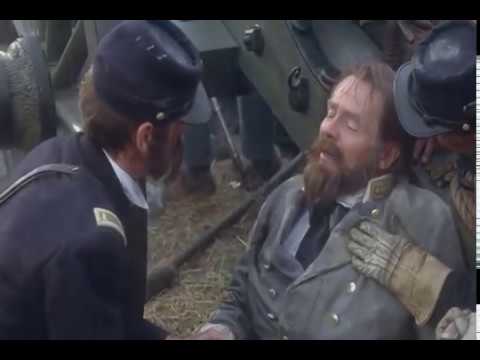 were the best of friends and here at Gettysburg, Armistead’s prayer was that he would not have to face Hancock on the field of battle. And it was Hancock who awaited him at the top of Cemetery Hill at the end of the ill-fated Pickett’s Charge. And it was Hancock that cradled Armistead in his arms as his friend’s life ebbed away. Joshua Reynolds had recently fallen in love and wore his sweetheart’s ring on a chain under his uniform. Robert E. Lee ached at the need to fight against men he’d once fought with, torn between old loyalties and his fealty to his home state of Virginia. J.E.B. Stuart was a laughing banjo player and an excellent scout. His reports had never failed Lee, until now. So, who is the villain and who the hero? But Shaara makes you care about them all and it’s hard to read this book without feeling the anguish they all felt. were the best of friends and here at Gettysburg, Armistead’s prayer was that he would not have to face Hancock on the field of battle. And it was Hancock who awaited him at the top of Cemetery Hill at the end of the ill-fated Pickett’s Charge. And it was Hancock that cradled Armistead in his arms as his friend’s life ebbed away. Joshua Reynolds had recently fallen in love and wore his sweetheart’s ring on a chain under his uniform. Robert E. Lee ached at the need to fight against men he’d once fought with, torn between old loyalties and his fealty to his home state of Virginia. J.E.B. Stuart was a laughing banjo player and an excellent scout. His reports had never failed Lee, until now. So, who is the villain and who the hero? But Shaara makes you care about them all and it’s hard to read this book without feeling the anguish they all felt.
XXXX
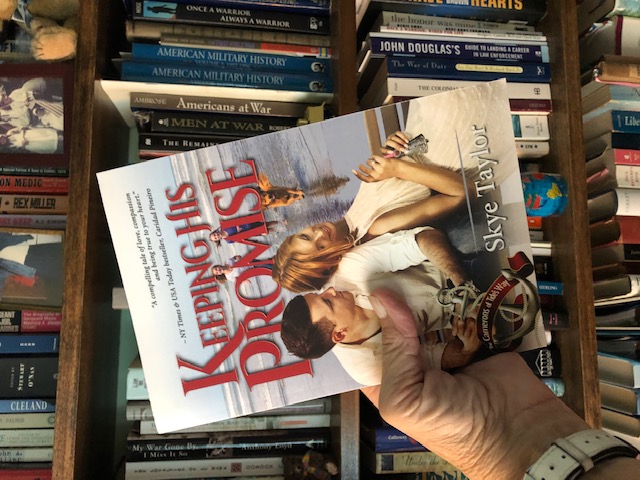 In my own writing, I have one “villain” who turns out to be pretty darn charming. In Keeping His Promise, my heroine, Kate, a journalist, wants nothing to do with a prominent politician’s plan to turn an abandoned plantation into a second chance house for young men who have gotten into trouble with the law, and Kate’s doing everything she can to make sure it never happens. She is prepared to dislike everything about the man the politician wants to introduce her to, a man being considered to run this second chance house. In my own writing, I have one “villain” who turns out to be pretty darn charming. In Keeping His Promise, my heroine, Kate, a journalist, wants nothing to do with a prominent politician’s plan to turn an abandoned plantation into a second chance house for young men who have gotten into trouble with the law, and Kate’s doing everything she can to make sure it never happens. She is prepared to dislike everything about the man the politician wants to introduce her to, a man being considered to run this second chance house.
XXX
Imagine her reaction to find he is a soft-spoken, educated, gentleman. And just when she’s ready to be charmed, he reveals his past: that of a soldier wounded and hooked on drugs, turning to crime to secure them when money ran out, and who ended up doing time for his crimes. Ah-ha! Exactly the sort of charming scoundrel she doesn’t want housed in her quiet town.  But Lucas Trevlyn’s story is more compelling than Kate can easily dismiss. While he was in prison his father passed away and when he got out, there was nowhere for him to go. The one man he’d depended on was gone. His home was gone. His livelihood as well because his education was in law enforcement was useless with a criminal record. And then came the day when he stood on the wrong side of the railing on a bridge over a highway, ready to end the mess he’d made of his life. And he would have gone through with it, had it not been for Sam Montgomery, an off-duty cop who spied him getting ready to jump. Sam talked him off the ledge and gave him a second chance. Now Lucas has a degree in counseling and he’s been working with young men, helping them to turn their lives around, and he wants very much to help them find their second chance. What is Kate to do now? But Lucas Trevlyn’s story is more compelling than Kate can easily dismiss. While he was in prison his father passed away and when he got out, there was nowhere for him to go. The one man he’d depended on was gone. His home was gone. His livelihood as well because his education was in law enforcement was useless with a criminal record. And then came the day when he stood on the wrong side of the railing on a bridge over a highway, ready to end the mess he’d made of his life. And he would have gone through with it, had it not been for Sam Montgomery, an off-duty cop who spied him getting ready to jump. Sam talked him off the ledge and gave him a second chance. Now Lucas has a degree in counseling and he’s been working with young men, helping them to turn their lives around, and he wants very much to help them find their second chance. What is Kate to do now?
XXXX
 I think it’s easy for a reader when the villain is not very likeable. But give him a human face, a human failing or a wound, a reason for what he or she does, and it’s harder for the reader to dislike him and cheer for his downfall. Just as it would be hard for a die-hard Dixie fan to hate a man who wears his sweetheart’s ring or a soldier who holds his friend, the enemy in his arms as he dies, it’s hard for the reader to not to care about the villain with a heart, or a charm or a failing that they can relate to. Just as I did when reading Kill List, knowing that Nick was onto Declan and that something had to happen to reconcile their opposing goals. Just as I did when I created Lucas, and meant him to be a thug that Kate would easily dismiss, but suddenly this character was telling me his life story and I was compelled to change the plot. I think it’s easy for a reader when the villain is not very likeable. But give him a human face, a human failing or a wound, a reason for what he or she does, and it’s harder for the reader to dislike him and cheer for his downfall. Just as it would be hard for a die-hard Dixie fan to hate a man who wears his sweetheart’s ring or a soldier who holds his friend, the enemy in his arms as he dies, it’s hard for the reader to not to care about the villain with a heart, or a charm or a failing that they can relate to. Just as I did when reading Kill List, knowing that Nick was onto Declan and that something had to happen to reconcile their opposing goals. Just as I did when I created Lucas, and meant him to be a thug that Kate would easily dismiss, but suddenly this character was telling me his life story and I was compelled to change the plot.
XXX
XXX
 Hop on over and check out how other authors have portrayed villains with charm. Hop on over and check out how other authors have portrayed villains with charm.
Fiona McGier
Judith Copek
Dr. Bob Rich
Connie Vines
Diane Bator
Helena Fairfax
Rhobin L Courtright
Sunday, June 07 2020
 VIRTUAL AUTHOR VISIT WITH A. PIPER BURGI VIRTUAL AUTHOR VISIT WITH A. PIPER BURGI
A. Piper Burgi is the author of several non-fiction books and recently added five historical fiction novels to her ever-expanding collection of published writings. Her debut novel, IN THE SHADOW OF HER MAJESTY, was a Golden Book Award Semi-Finalist, and Readers' Favorite Book Reviews named her women's fiction novel THE COUNTRY GIRL EMPRESS "...a must-read for historical fiction fans who can appreciate the imperial intrigues…"
She is also a member of the Historical Novel Society, the Independent Author Network, an Air Force Veteran, and a military spouse; plus a busy doggie mommy, a cook, a chauffeur - you get the picture. When she is not busy chasing after her three furry children or holding on tightly to a good cup of coffee, she can be found typing away on her computer.
Website URL: https://www.authorapiperburgi.com
Blog URL: https://www.authorapiperburgi.com
Facebook: https://www.facebook.com/authorapiperburgi/
YouTube: https://www.youtube.com/channel/UC4eG0tDPohHPM1RcBcDY-pQ
LinkedIn: https://www.linkedin.com/in/a-piper-burgi-0ba30b14
Goodreads: https://www.goodreads.com/author/show/7121827.A_Piper_Burgi
X
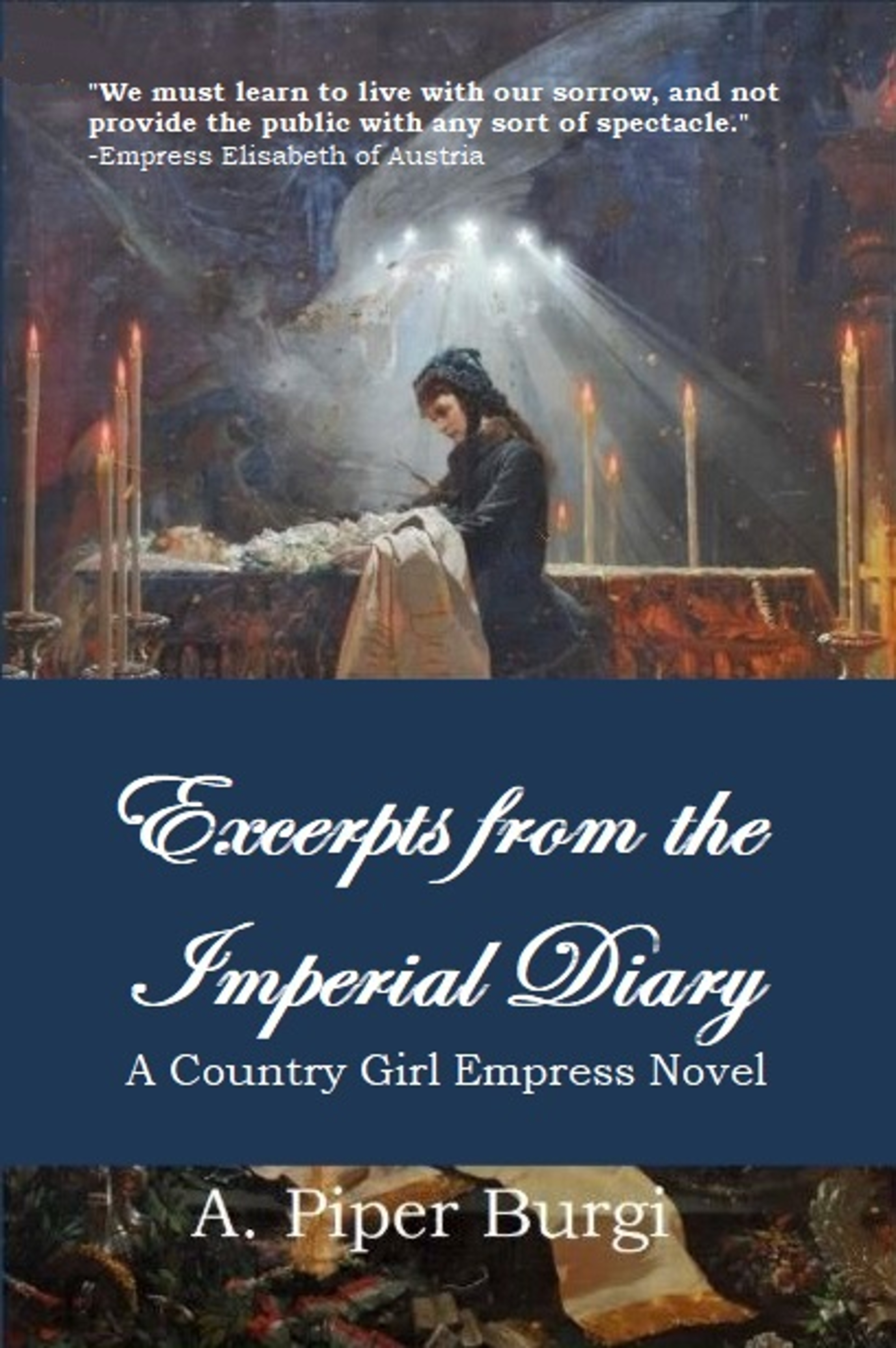 About IMPERIAL DIARY – A COUNTRY GIRL EMPRESS NOVEL (Book 4 of the series) About IMPERIAL DIARY – A COUNTRY GIRL EMPRESS NOVEL (Book 4 of the series)
Publication date: 16 Mar 2020
Publisher: Independently Published
Genre: Historical Fiction/Historical Person
The sudden, violent death of Sisi’s only son, Crown Prince Rudolph at his hunting lodge Mayerling, shakes the Empire to its core. The fact that the dead body of his teenaged mistress is found next to his makes the scandal complete. Does this tragedy mark the end of the Danube monarchy, since Rudolph only had a daughter?
Buy the book: IMPERIAL DIARY – A COUNTRY GIRL EMPRESS
Amazon: https://www.amazon.com/A-Piper-Burgi/e/B00D358KYM
Note: All four books of the Country Girl Empress series (Kindle version only) are currently on sale at: https://www.amazon.com/A-Piper-Burgi/e/B00D358KYM
C
c
c
c
Interview with A. Piper Burgi
How long have you been writing fiction? When did you start?
I’ve been scribbling as long as I’ve known how to write. But I started writing seriously nearly a decade ago and added fiction writing to my repertoire four years later.
Why did you start —what triggered your writing?
I began writing in my spare time shortly after my mother suddenly passed away. Just a few months prior, she had asked for my help to get her memoirs published, but neither one of us had any idea where to begin. As I worked hard to keep my promise to my late mother, I needed to create some balance between the sad memories of my mother’s passing and my active lifestyle. And I found that when writing my stories. Before I knew it, I was entirely consumed by this new pastime.
What was your “writer dream when you began to write? What is your “writer dream” now?
My original goal was to make the pain I felt, caused by my mother’s death, somehow a little more bearable. As time went on, I’ve adjusted my goals. These days it’s primarily about story-telling, less self-healing.
What does the act of writing bring into your life? Why do you want to write?
Writing provides me an outlet for my creativity and imagination.
Do you have a favorite writing space or a place you go to for inspiration?
My favourite place to write is sitting on my sofa with my laptop on my lap. Inspiration can be found everywhere.
What part of the writing process do you enjoy the most? The least?
I love to write, create a story from beginning to end, closely followed by researching my subject matter; it makes me feel like I’m on a treasure hunt. I’m not very fond of editing, but I’ve made my peace with it, as it is part of the process.
X
Excerpt from Imperial Diary
Dense rain clouds hung deep over the port of Trieste, and bolts of lightning struck near Miramare Castle. The first large drops of rain fell. The winds howled in short bursts around the reinforced battlements. The sounds of the heavy surf mixed with the rumbling thunder were only drowned out by the patter of the rain against the window panes.
Just a few hours ago, the imperial yacht “Miramar” had arrived at the private pier of the castle with Empress Elisabeth of Austria and her small entourage on board. While the ladies-in-waiting, Countess Marie von Festetics, Ida von Ferenczy, and Landgravine Therese von Fürstenberg as well as the always-busy Baron Nopsca, exhausted from the journey, retreated to their rooms, Empress Sisi had begun one of her infamous long walks without a bite to eat. And despite the nearing thunderclouds, she went alone.
“I’m beginning to seriously worry about Her Majesty,” the Baron said to Ida von Ferenczy and stepped towards one of the high windows from which one could see over the fence all the way down to the empty coastal streets of Trieste.
“Not a single person in sight! I hope she has enough common sense to seek shelter somewhere. What would the Emperor say if something happened to her!?”
“I don’t even want to imagine that, Baron! What if she sought shelter in a local public house, all by herself, and someone recognizes her? Just think about the assassination attempt three years ago! And to this day, you occasionally read ‘Eviva Guglielmo!’ smeared on buildings and statues, even after that Italian irredentist, Mr. Oberdank, was arrested.”
“That time, our police force did good work. I’ve informed the local police president immediately after we arrived! They will keep a close watch on the castle and the surrounding areas.”
“That is more than necessary, Baron. No one is safe because of these Nationalists, but Her Majesty doesn’t seem to care. She just pretends that none of this pertains to her.”
“You’re telling me?! She doesn’t make it any easier for me,” the Baron moaned. “I thought over time, she would change, but apparently, I was wrong. She not only looks like the years have passed her by without a trace, but she also acts like it. The word ‘fatigue’ is not part of her vocabulary. She rides like the Devil, and her wanderlust is almost unearthly. Nature, nature, nothing but nature! And that combined with her love for the poet Heinrich Heine and his writings…”
He looked towards the Heavens for help, while Ida jumped up in the bright light of the latest lightning bolt, which was almost immediately followed by the grumbling of thunder.
“Holy Mother of God…” a female voice could be heard from the direction of the door. “What’s she going to look like this time when she comes back? And I just combed her hair and pinned it up just before we disembarked the yacht.”
Fanny Feifalik, Her Majesty’s hairdresser, entered the room and fell onto an armchair while wringing her hands in despair.
“You have nothing but hair on your mind,” Baron Nopsca snapped.
Sunday, May 31 2020
VIRTUAL AUTHOR VISIT WITH NANCY CHRISTIE
 Nancy Christie is the award-winning author of two short story collections: Traveling Left of Center and Other Stories and Peripheral Visions and Other Stories (Unsolicited Press), two books for writers: Rut-Busting Book for Writers and Rut-Busting Book for Authors (Mill City Press) and the inspirational book, The Gifts of Change (Atria/Beyond Words). Her short stories have appeared in numerous literary publications, with several earning contest placements. Nancy Christie is the award-winning author of two short story collections: Traveling Left of Center and Other Stories and Peripheral Visions and Other Stories (Unsolicited Press), two books for writers: Rut-Busting Book for Writers and Rut-Busting Book for Authors (Mill City Press) and the inspirational book, The Gifts of Change (Atria/Beyond Words). Her short stories have appeared in numerous literary publications, with several earning contest placements.
A member of the American Society of Journalists and Authors, and the Florida Writers Association, Christie teaches writing workshops at conferences, libraries and schools. She is also the founder of the annual “Celebrate Short Fiction” Day.
Website: www.nancychristie.com
Blogs
Facebook: https://www.facebook.com/NancyChristieAuthor/
Twitter: https://twitter.com/NChristie_OH
Pinterest: https://www.pinterest.com/nancychristiewr/
Instagram: https://www.instagram.com/nancychristie_author/
YouTube: https://tinyurl.com/NancyChristieOnYouTube
LinkedIn: https://www.linkedin.com/in/nancychristie/
XX
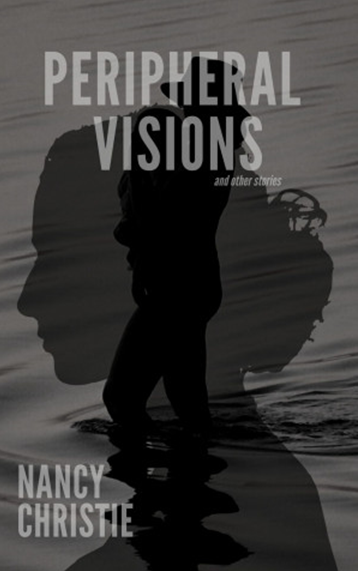 About PERIPHERAL VISIONS AND OTHER STORIES About PERIPHERAL VISIONS AND OTHER STORIES
Publication Date: May 5, 2020
Publisher: Unsolicited Press
Genre: Literary Fiction
What do you do when the hand that life deals you isn’t the one you wanted? In Peripheral Visions and Other Stories, the characters choose to play the best game they can with the cards they’ve received. For some, it’s making the most of the circumstances in which they find themselves, even if it’s not the life they planned. For others, it’s following an unconventional path—not the easiest course or the one that others would take, but the one that’s right for them. But they never lose hope that life will get better if they can just hold on.
Peripheral Visions and Other Stories won second place in the Florida Writers Association 2018 Royal Palm Literary Awards (RPLA) competition, with three of the stories having also earned contest placements.
Buy the book: Peripheral Visions and Other Stories
Bookshop: https://tinyurl.com/yd6cro92
Smashwords: https://tinyurl.com/rks47z6
Barnes & Noble: https://tinyurl.com/yamplxon
Amazon: https://amzn.to/2LSqK4a
Unsolicited Press: https://tinyurl.com/ya5o2dhm
XX
Interview with Nancy Christie
What triggers your story ideas: a character, a setting, plot or dialogue?
Some of my stories are inspired by dreams, while others are the result of overhearing (okay, eavesdropping!) on conversations between strangers. Some stories arise from a technical challenge I set for myself. One (still in progress) is a children’s story about a princess who lost her passion. I wanted to use as many “P” words as I could, preferably ones that were fun to say aloud. Another story, “Still,” is a flash fiction piece using the same word but in its different forms: as an adverb, adjective, conjunction. And then there are others that I have no idea where the ideas for them come from!
Do you have a theme you return to time and again?
Loss and loneliness, the difficulty that people have in navigating through life, the fear of change coupled with the awareness that change will come, whether they want it to or not.
What part of the writing process do you enjoy the most? The least?
When I am writing just for writing’s sake, and the words flow out and they are expressing exactly what is in my mind and heart, or the minds and hearts of my characters. That’s a joy that has nothing to do with money or publication but all to do with fulfillment.
Like most authors I’ve talked to, the marketing is the least enjoyable. While I love interacting with my readers, I am often frustrated by the time-sucking, nuts-and-bolts tasks associated with promoting my books, and never knowing which one will work!
What is your most recent book?
Peripheral Visions and Other Stories is my most recent book. It’s my fifth book and my second short story collection. In a way, the stories in this book are a counterpoint to those in Traveling Left of Center and Other Stories. While the stories in that book are about people who either can’t or won’t take control of their lives, the characters in Peripheral Visions and Other Stories are choosing to play the best game they can with the cards Fate has dealt them, hoping that life will get better if they can just hold on and stay strong.
Tell us an interesting fact or hidden secret about one of the characters that we wouldn’t know by reading the book.
“Waiting for Sara” and “Going Home” are the only two linked stories I have written to date. The first, part of the Traveling Left of Center and Other Stories collection, is told from the viewpoint of the mother. The second, included in Peripheral Visions and Other Stories, is told from the viewpoint of the errant daughter.
Also, I wrote the first draft of “Peripheral Visions” years before either of my parents had developed cancer, but wasn’t able to finish it until after my father’s death in 2015. (I had been his caregiver for several years.) I re-created the character’s road trip from Ohio to St. Augustine to get the geographic details correct, but also found that the trip and the solitude helped me deal with the loss of my father as well.
Excerpt from “Peripheral Visions” from Peripheral Visions and Other Stories
“Shoot.” Lena caught sight of the sign pointing the way to the rest stop off I-77 almost a fraction of a moment too late. She turned the wheel too sharply, causing the right tires of her old Ford Escort to kick up bits of gravel from the shoulder, before she could navigate it safely onto the turnoff.
Shaking slightly, she slowed the car to a more sedate twenty-five-miles per hour before brushing the perspiration from her forehead.
“That was close,” she said to no one in particular. Talking to herself was a habit she had acquired since her mother’s passing. The young think older people talk to themselves because they are going senile. But when there is no one left to talk to, you have to talk out loud. Otherwise, the silence can be deafening. And after decades as a practical nurse where she routinely carried on conversations with patients simply to ease the sterile loneliness of the oncology ward, Lena knew the value of the spoken word even when there wasn’t anyone around to answer.
She glanced up at her rearview mirror, hoping the blue highway patrol car that seemed to be shadowing her since she crossed into West Virginia hadn’t caught her latest misjudgment. That’s all she would need: flashing lights, a request that she show her driver’s license, and then a trip to the police station, where they would no doubt confiscate her car and contact her niece Claire.
Claire. By now, Claire might have figured out what Lena was up to, but she still wouldn’t be sure exactly where her aunt had headed. For who would expect a seventy-two-year-old woman who had never driven beyond the Kingsville city limits to drive the nine-hundred-plus miles from Ohio to Florida?
Not Claire, that’s for sure. Claire would have expected Lena to be looking forward to her move to Golden Glow, to behave as the sane, sensible, and highly responsible maiden aunt she had always been.
“Not this time, though,” Lena said aloud, as she checked the parking area for other cars, including any with the telltale light bar mounted on the roof and distinctive twin gold stripes on the side, before pulling into a parking spot. “For once in my life, I’m going to do what I want to do, instead of walking a straight line right up to the end.”
That’s the biggest problem with the world today, she thought as she gingerly slid out of the car, carefully stretching her back to work out the kinks. The pain that had plagued her shoulder was even worse than usual this morning, undoubtedly aggravated by too many hours behind the wheel.
She moved her body slowly, continuing her conversation aloud. “People walk around with blinders on just like horses, their eyes glued on the goal, the ‘Big Picture.’ There’s no sidestepping, no walking off the beaten path, no road less traveled. You get ahead that way, it’s true. But what if where you end up isn’t where you should have gone?”
The West Virginia sunshine was welcoming and a darn sight better than the freezing northeast weather she had left behind almost four hours earlier. A wet, sleety snow had made the driving more than a little challenging, especially once she got on the interstate and had to contend with all the tractor-trailers that were crowding the roadway.
It wasn’t until she had approached the Marietta–Williamstown Interstate Bridge that would take her over the Ohio River and into West Virginia that the weather improved and the horizon looked brighter. Lena didn’t usually believe in omens but this time she took heart in the fact that across the border the sun was shining, the snow was non-existent, and that it would be a warmer, better place than the one she had left.
And now, safe in another state, even her back felt better—well, at least, compared to how it had felt all winter long. Of course, she knew that nothing would make it feel completely fine. Even the pills only dulled the edge of the pain, never relieving it entirely.
That’s really what decided her on this trip. She was afraid that if she waited any longer, either her nerve or her body would betray her and she would spend what was left of her time—three months, maybe less, she judged—in the fluorescent confines of the nursing home or hospital.
The whole time her niece Claire was talking—laying out stage after stage for her aunt as though Lena couldn’t put two and two together and end up with four—Lena’s mind flashed to tantalizing pictures of a bit of sand and sparkling water. It looked mighty appealing to her, especially since she was tired of shoveling snow from the driveway before she could leave the house. It was a good car, even if it was as old as dirt, and she thought it deserved better than to have its fenders frozen off for weeks on end.
For that matter, so did she.
Sunday, May 24 2020
VIRTUAL AUTHOR VISIT WITH KATHLEEN KELLEY REARDON
 Kathleen Kelley Reardon is professor emerita of business and preventive medicine at the University of Southern California. She has published ten nonfiction books and two crime mysteries. She draws upon her research on gender issues, love of crime mysteries and knowledge of the academic underworld for both Shadow Campus (2013) and Damned If She Does (2020). She keeps herself guessing as to who-done-it, so the reader is unsure right to the end. Kathleen is also an artist and her work is at www.paintingdoc.com and her Facebook page. Kathleen Kelley Reardon is professor emerita of business and preventive medicine at the University of Southern California. She has published ten nonfiction books and two crime mysteries. She draws upon her research on gender issues, love of crime mysteries and knowledge of the academic underworld for both Shadow Campus (2013) and Damned If She Does (2020). She keeps herself guessing as to who-done-it, so the reader is unsure right to the end. Kathleen is also an artist and her work is at www.paintingdoc.com and her Facebook page.
X
Blog URL: www.kathleenkelleyreardon.com
Twitter: https://twitter.com/kathreardon @kathreardon
Facebook: https://www.facebook.com/kathleenkelleyreardon/
Instagram: https://www.instagram.com/kathchrisrn kathchrisrn
X
X
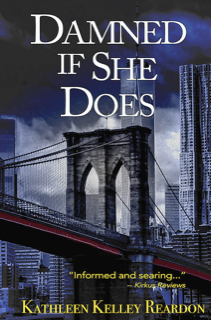 About DAMNED IF SHE DOES About DAMNED IF SHE DOES
Publication date: January 24, 2020
Publisher: Big Table Publishing
Genre: crime mystery
Young professor Meg Doherty has long held a dark secret. When a renowned professor is viciously murdered at a Manhattan hotel conference, Meg stumbles upon the scene and quickly becomes a prime suspect. Caught in NYC’s blinding media spotlight, gilded society and criminal underworld, Meg and her brother, Shamus, risk their lives to prove her innocence.
Forbes described Shadow Campus as a “fast-paced” and “masterful debut.”
Kirkus Reviews found Damned If She Does “informed and searing” and a “page-turning success”
Buy the book: Damned If She Does
Amazon: https://www.amazon.com/Damned-She-Does-Kathleen-Reardon-ebook/dp/B0844PJLNX/ref=sr_1_1
≈
Backstory for DAMNED IF SHE DOES
Damned If She Does (2020) by Kathleen Kelley Reardon
As a child, I loved art and writing. A truly wonderful Bunnell High School English teacher, Judith Kase, saw promise and creativity in my writing and encouraged both. For five years, I taught high school English in South Windsor and Stratford, Connecticut. Having also studied communication at the University of Connecticut, my career path took me on to an MA and Ph.D. at UMass, Amherst. As a newly minted professor in my twenties, I published research papers and my first of ten nonfiction books, Persuasion in Practice (Sage). It’s still in print today.
Fiction took a back seat to research and writing, tenure and promotion. So, it wasn’t until my forties that I returned to it. Experiences as a female academic seeking tenure at a business school inspired me to begin writing Shadow Campus – my first crime mystery. Publication came years later. With three children and on route to full professor, there was little extra time. But I came back to the manuscript during the summers.
I was writing Damned If She Does long before the MeToo era began. Meg, one of two lead characters, keeps a dark secret until she stumbles upon the dead body of the man who caused it all and quickly becomes the prime suspect. Four characters from Shadow Campus return in this second crime mystery, which I anticipate becoming part of a trilogy. The first book took place in L.A, the second in New York City, and the third, now partially written, will be situated in West Cork Ireland.
Interview with primary character, Shamus Doherty
Kathleen: Shamus, I’m delighted that you’re here. I know you’re a private person. Let’s start there. You finally said yes to this interview on the fourth try.
Shamus: You’ve put me in two novels. I guess you could say my life is no longer my own. Besides, my sister can’t seem to shake the notion that her brother is an introvert whose love life won’t blossom until he opens up. J.
Kathleen: Any other reason?
Shamus: (smiling) Maybe I’m just a little worried about what you’ll write about me in the third book.
Kathleen: At this point, I may have little wiggle room. Our readers know you as well as I do. Some tell me what you’ll do next.
Shamus: You reap what you sow.
Kathleen: Let me ask you this: You’ve stolen the hearts of many female readers. They describe you as a “diamond in the rough.” What’s your response to that?
Shamus: Detective Jeffries says any charm I might have is wasted – that I’m oblivious to women noticing me.
Kathleen: Do you think he has a point?
Shamus: I think he’s just grumpy.
Kathleen: He is that. So, tell me, in book three you’ll be in Ireland. Are you looking forward to that?
Shamus: I’m not much for travel, but my Irish roots go way back. I think we can tell Meg that I’m branching out.
Kathleen: She’s going along, isn’t she?
Shamus: Yep. She’s been there many times and loves it, especially West Cork.
Kathleen: You’re becoming quite the amateur detective. Is that something you plan to turn into a career?
Shamus: It’s born of necessity. My dream is building beautiful homes. Maybe someday a degree in architecture.
Kathleen: I guess we’ll see.
Shamus: (Smiling) Unless you want to tell us now.
Kathleen: Thank you for being here, Shamus.
Shamus: Ah, you’re keeping it a secret. I knew it.
Kathleen: One last thing, Shamus. Is Denise in your future?
Shamus: She’s in my present. That’s really all I can say.
Excerpt from DAMNED IF SHE DOES
Damned If She Does is based in New York City. As Covid-19 continues to bring great pain there, here are two excerpts reminding us of the city’s unique beauty:
z
When they left MOMA, it was dark and lightly snowing. Meg’s cheeks reddened from the cold; her eyes brightened. Rashid breathed in Manhattan’s icy magic. Leafless tree branches adorned with miniature white lights, obscure an hour earlier, now reached their glowing branches skyward like secondary characters boldly stealing the show. Cars and taxis moved rhythmically, cooperatively. Buildings glistened. Rainbow hued pigeons, heads bobbing, dexterously scurried and fluttered in a precarious dance with preoccupied pedestrians.
“No place quite like it,” Shamus said.
Rashid slowly nodded as he looked up transfixed by snowflakes bright against the darkening sky, some joining like starlings in harmonic formations, upward and downward, inward and outward, as if having practiced together for years …
Z
Shamus stopped in front of the Plaza Hotel. His parents had taken him and Meg there on pre-Christmas sojourns to see the decorations and to enjoy a brunch memorable for the steaming hot chocolate poured by fastidious waiters from gleaming silver, long-stemmed pots. He and Meg had looked forward to the annual pilgrimage almost as much as Christmas morning. It was a tradition of indulgence, a harbinger of more pleasures to come, costly for his parents, but one of exquisite happiness until things had gone sour between him and his father…
Crossing the street beside the hotel brought him into Central Park. A few minutes later, he was at the skating rink. He wiped snow from a bench and sat watching skaters glide and spin as his mind wrestled with how his sister had been nearly present for two murders. He’d have to shop around for a top-notch lawyer. The one he’d found would do for tonight. She seemed sharp enough in the few minutes they’d had to talk. But things were going from bad to worse, and Meg needed a shark.
Shamus purchased a hot chocolate, held it tight to warm his hands, and breathed in the rich, sweet distraction. He watched a woman twirl on one skate in the center of the rink and then began to make his way back to the hotel. Continuing along the park, cross-country skiers were taking to the roads now nearly clear of traffic. Another hour and the city would be pedestrians only, dodging the occasional determined plow. He looked up to find where John Lennon had lived and tragically died. Snow caressed the park trees, bordered and bejeweled the stone bridges, here and there spinning in mini tornadoes, as if this was perhaps its final show before bequeathing the stage to the colors of spring.
He shivered. The temperature was dropping. Reality was creeping back. His phone pinged: Meg texting that she’d meet him at the hotel. Couldn’t stay there another minute, she wrote. Okay, he texted back. See you there. He’d planned to talk with the lawyer, but that would have to wait.
Reaching the edge of the park, he looked back one more time to watch children rolling in the snow beneath street lamps, young adults making snow angels, throwing snowballs and playing Frisbee. Someday, he thought, on a night like this, maybe, just maybe, I’ll bring someone special here.
Saturday, May 16 2020
 For May, our Round Robin Blog is all about editing. All books go through multiple edits. What have your learned are your problems, and what irks you about editing? For May, our Round Robin Blog is all about editing. All books go through multiple edits. What have your learned are your problems, and what irks you about editing?
XX
XX
There are several rounds of editing for any writer. Each serving a different purpose. For me, one kind of editing 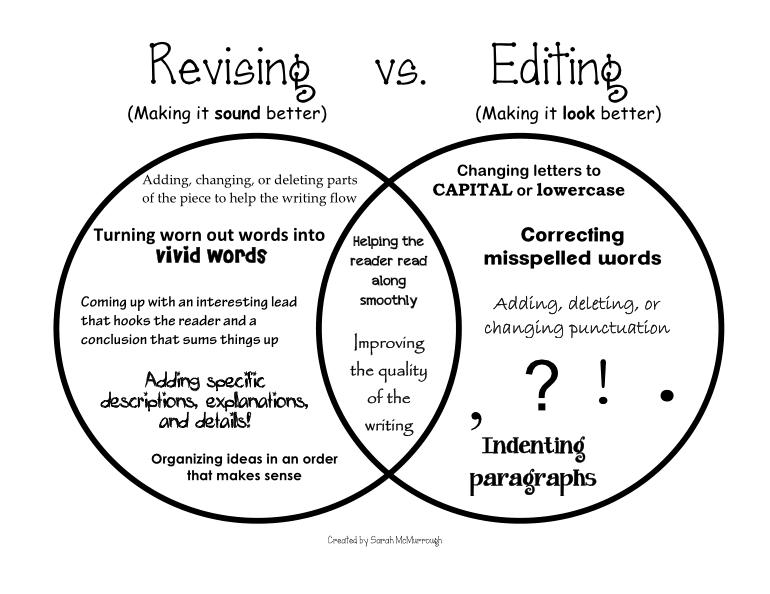 goes on during the writing of the story. I realize in Chapter 5 that the kid in chapter 2 can’t be five years old, he has to be closer to nine or ten so I go back to change it. Or my hero couldn’t have joined the Army in 2009 because based on his birthday, he’d have been fourteen when he went to West Point. Although some folk keep a running log for this kind of change, I generally take a moment to go fix it when I realize the inconsistency. In the writing of a mystery I might discover some clue that needs to be hinted at or foreshadowed earlier. Again, I could just keep a log and do it later, but I prefer to go back and fix it now because the story “feels” like it is flowing better when I know it’s been fixed and I know how I fixed it so references to that fix are more natural. The same thing would apply if I discovered that my heroine had some trauma in her past that informs her decisions and actions now. I feel totally compelled to haul out her dossier (a separate document) and add that whole sad, traumatic event, how it affected her then, how she overcame it, and how it changed her life going forward. Now I return to the point where I realized this lurking in her past and I have a far better idea what should be happening now. goes on during the writing of the story. I realize in Chapter 5 that the kid in chapter 2 can’t be five years old, he has to be closer to nine or ten so I go back to change it. Or my hero couldn’t have joined the Army in 2009 because based on his birthday, he’d have been fourteen when he went to West Point. Although some folk keep a running log for this kind of change, I generally take a moment to go fix it when I realize the inconsistency. In the writing of a mystery I might discover some clue that needs to be hinted at or foreshadowed earlier. Again, I could just keep a log and do it later, but I prefer to go back and fix it now because the story “feels” like it is flowing better when I know it’s been fixed and I know how I fixed it so references to that fix are more natural. The same thing would apply if I discovered that my heroine had some trauma in her past that informs her decisions and actions now. I feel totally compelled to haul out her dossier (a separate document) and add that whole sad, traumatic event, how it affected her then, how she overcame it, and how it changed her life going forward. Now I return to the point where I realized this lurking in her past and I have a far better idea what should be happening now.
XXX
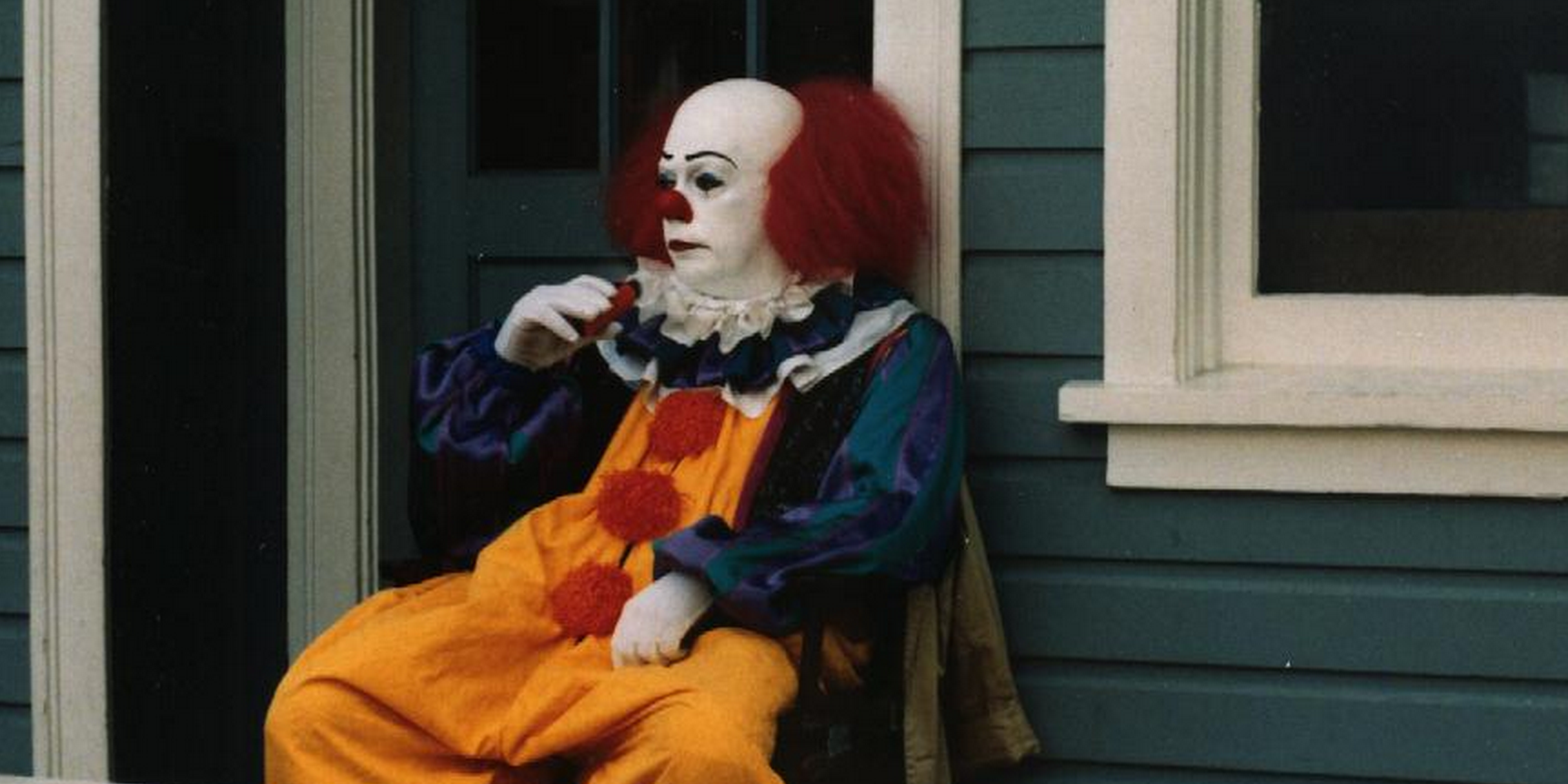 My next edit/revision comes after my critique partner(s) have sent my chapter(s) back with their comments. They might find some inconsistency I missed, or ask a question I should have asked before because I have no idea what the answer is or should be. They also pick up things like passive voice, dialog that doesn’t sound right to them, backstory or info dumps, or characters who are acting OUT of character – at least out of character as I have portrayed them up to now. This kind of editing and revision might be after the entire book is complete, but for most of the critique relationships I’ve been in, this is ongoing while writing the story. I have to weigh their comments against what I know about my characters and my plot. Most times they point out things I should have seen but didn’t – a matter of seeing the forest for the trees, thing. But I might also dismiss a comment because I know it gets answered later, or because I know in my gut it does not fit the character or the plot. Critique partners also pick up on missing beats, confusing dialog – My next edit/revision comes after my critique partner(s) have sent my chapter(s) back with their comments. They might find some inconsistency I missed, or ask a question I should have asked before because I have no idea what the answer is or should be. They also pick up things like passive voice, dialog that doesn’t sound right to them, backstory or info dumps, or characters who are acting OUT of character – at least out of character as I have portrayed them up to now. This kind of editing and revision might be after the entire book is complete, but for most of the critique relationships I’ve been in, this is ongoing while writing the story. I have to weigh their comments against what I know about my characters and my plot. Most times they point out things I should have seen but didn’t – a matter of seeing the forest for the trees, thing. But I might also dismiss a comment because I know it gets answered later, or because I know in my gut it does not fit the character or the plot. Critique partners also pick up on missing beats, confusing dialog –  who’s speaking or acting. This could easily be fixed in the next edit and often is, but depending on where I am emotionally in my story, I might decide to fix these places now. who’s speaking or acting. This could easily be fixed in the next edit and often is, but depending on where I am emotionally in my story, I might decide to fix these places now.
XXX
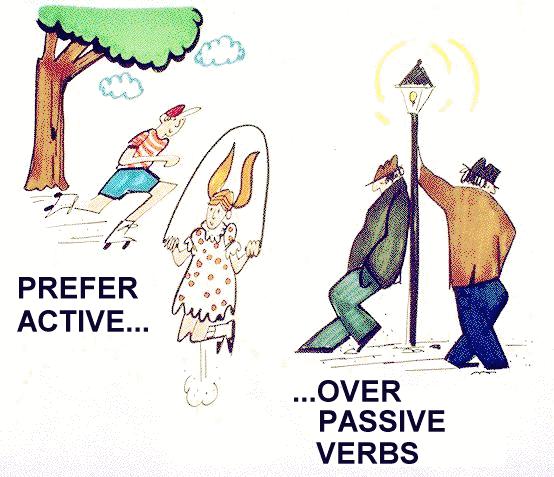 Then there’s the first big edit when I click on “Find” and look for all those pesky words I over use. Everyone has such a list. Mine includes anything ending with ING or words like really. was, well, said, and others. ING words mean the telling is passive and any time I can switch it up to active makes the writing stronger. Bret strode past the gas pump, instead of Bret was walking past the gas pump. A tall man wearing a Bruins jersey changed to A tall man in a Bruins Jersey. I was looking at my phone, placing a call… is much stronger if I punched in the number and waited impatiently. Of course, in this example I’d also change that waited impatiently which is telling into I punched in the number and drummed my fingers on the desk which shows action and impatience. The point of this exercise is to remove all those words and phrases that I overuse. And as a by-product see the weaker telling phrases and reword to show instead. This is where I look for all the grammar errors and missing or misplaced punctuation. Then there’s the first big edit when I click on “Find” and look for all those pesky words I over use. Everyone has such a list. Mine includes anything ending with ING or words like really. was, well, said, and others. ING words mean the telling is passive and any time I can switch it up to active makes the writing stronger. Bret strode past the gas pump, instead of Bret was walking past the gas pump. A tall man wearing a Bruins jersey changed to A tall man in a Bruins Jersey. I was looking at my phone, placing a call… is much stronger if I punched in the number and waited impatiently. Of course, in this example I’d also change that waited impatiently which is telling into I punched in the number and drummed my fingers on the desk which shows action and impatience. The point of this exercise is to remove all those words and phrases that I overuse. And as a by-product see the weaker telling phrases and reword to show instead. This is where I look for all the grammar errors and missing or misplaced punctuation.
XXX
 My books next go to a “Beta” reader. Someone I trust, who is comfortable being totally honest with me about their reaction to the characters, plot, dialog and action. It’s a fresh set or two or three of eyes reading for pleasure, not editing for errors. Then they give me more general comments. Along the lines of “I really liked the twins but to be honest, I can’t figure out why Bob did that. It’s just so out of the blue. A comment like this means one of two things. 1) I knew something about my character that I failed to give the reader a clue about, or 2) it was totally out of the blue and not consistent with the character. Other things a beta reader might say: “Teenagers don’t talk like Susie does in this book. You should spend an afternoon with a friend who has teenagers and listen to them talking for a while, then fix this.” Or “You put this character in the story who has Alzheimers and most of the time you did a good job of portraying what it’s like to live with someone like this, but in chapter 13 this woman remembers way too much detail about what happened the day before. Alzheimer’s patients can often recall details from forty years ago, but can’t remember what they ate for breakfast so this just didn’t work for me.” My books next go to a “Beta” reader. Someone I trust, who is comfortable being totally honest with me about their reaction to the characters, plot, dialog and action. It’s a fresh set or two or three of eyes reading for pleasure, not editing for errors. Then they give me more general comments. Along the lines of “I really liked the twins but to be honest, I can’t figure out why Bob did that. It’s just so out of the blue. A comment like this means one of two things. 1) I knew something about my character that I failed to give the reader a clue about, or 2) it was totally out of the blue and not consistent with the character. Other things a beta reader might say: “Teenagers don’t talk like Susie does in this book. You should spend an afternoon with a friend who has teenagers and listen to them talking for a while, then fix this.” Or “You put this character in the story who has Alzheimers and most of the time you did a good job of portraying what it’s like to live with someone like this, but in chapter 13 this woman remembers way too much detail about what happened the day before. Alzheimer’s patients can often recall details from forty years ago, but can’t remember what they ate for breakfast so this just didn’t work for me.”
XX
 Another thing both Beta readers and critique partners might say is “Where’s the hook?” I could have put this book down so easy, either at the end of a specific chapter or throughout the book. This means I have not thoroughly ramped up the tension in that chapter, or have not kept the tension and conflict growing throughout. I have not left an unanswered question at the end of a chapter or put my protagonist on the edge of a cliff so the reader is compelled to keep turning pages even when it’s one o’clock in the morning. Another thing both Beta readers and critique partners might say is “Where’s the hook?” I could have put this book down so easy, either at the end of a specific chapter or throughout the book. This means I have not thoroughly ramped up the tension in that chapter, or have not kept the tension and conflict growing throughout. I have not left an unanswered question at the end of a chapter or put my protagonist on the edge of a cliff so the reader is compelled to keep turning pages even when it’s one o’clock in the morning.
XXX
My biggest problem with editing and revising is I constantly see things I think I need to tweak. I do love my thesaurus and always seem to think there might be a better word for this particular place. Or my character is speaking and I keep rewording their dialog. Eventually I have to get tough with myself and just put the book to bed. Or more accurately send it off to my acquiring editor (for traditionally published books) or my copy editor for my indie books. Doesn’t mean I’m done yet because it will come back and there will be yet more things to fix. But by now I am so ready to move on, and 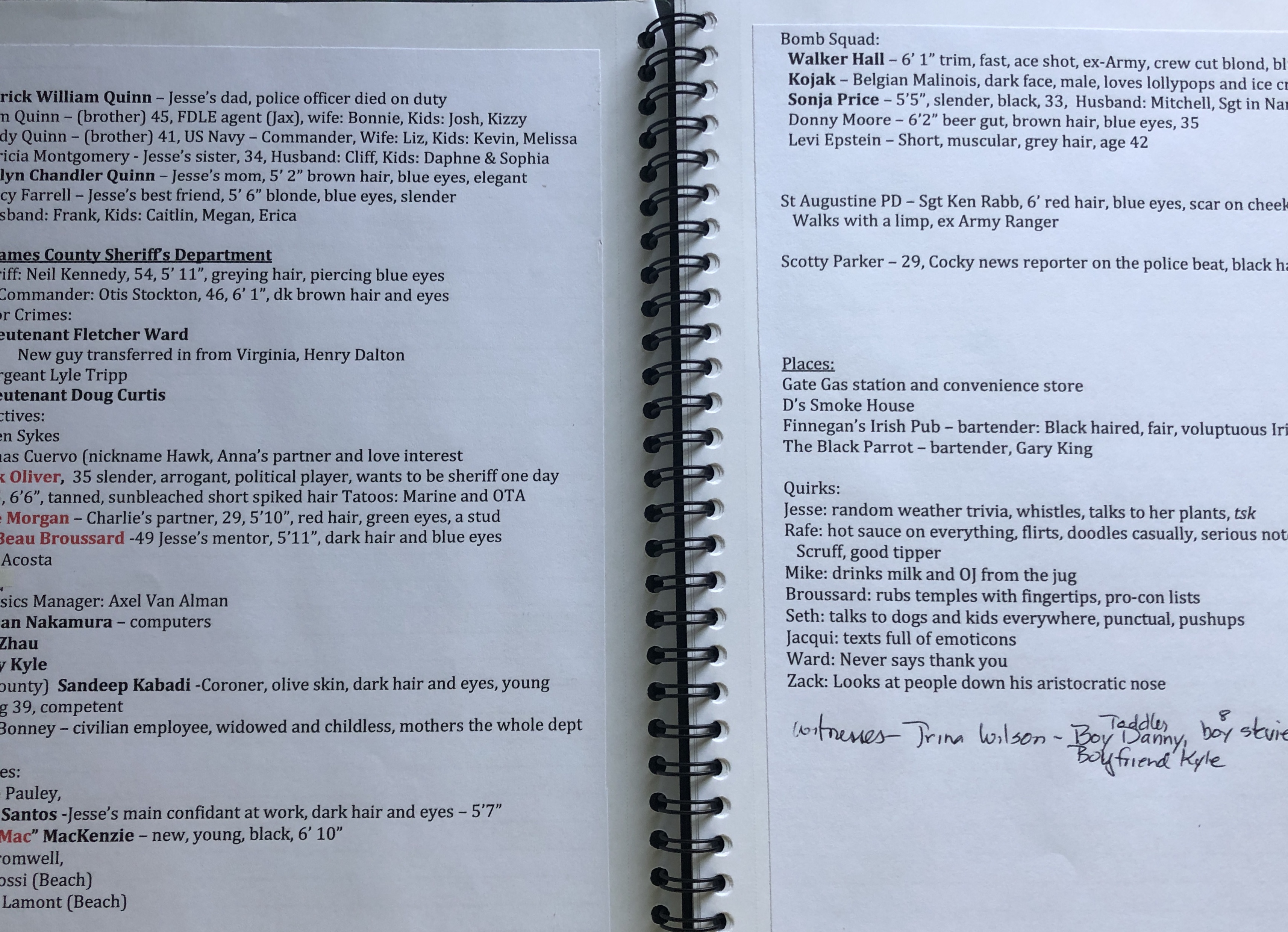 might already be well into the next book so I’m far less likely to get nit-picky, and far more likely to just make the requested changes before sending it off for formatting and publishing. might already be well into the next book so I’m far less likely to get nit-picky, and far more likely to just make the requested changes before sending it off for formatting and publishing.
XXX
So, what have I learned and what irks me? I’ve learned how to spot passive tense. Telling instead of showing pops out at me far easier now. I’ve learned to keep a running list of things that need fixing later if waiting won’t impact what I’m writing now. And the biggest thing editing has taught me is to ALWAYS have a Bible. Always have a list of characters with basic physical characteristics, family, friends, what car they drive etc. Even for a stand-alone because I don’t want my hero’s mother to have blue eyes and drive a red pick-up truck in chapter one and have gray eyes and drive a Camaro in chapter fifteen. Worse, I don’t want to get to chapter fifteen and can’t remember what some bit character looked like and have to go back, combing  through 50,000 words or more to find the answer. It just makes life easier. Also, as I’m writing, if I add, or should say, AS I add characters in the process of writing, I go back and add that character to my Bible. I might not think he’s going to show up again, but if I didn’t add him, he surely would. It’s even more important to have a Bible for a series so all the main players, places, etc, are consistent. Another thing I’ve found is helpful, that I learned while editing is to have a time-line. So things fit relative to time. My characters are the right age, events in their lives are consistent with both the world they live in and their ages and any “real” events in the world are appropriately set in the story. (How many books have some connection to 9/11? Or other similarly familiar events need to fit.) through 50,000 words or more to find the answer. It just makes life easier. Also, as I’m writing, if I add, or should say, AS I add characters in the process of writing, I go back and add that character to my Bible. I might not think he’s going to show up again, but if I didn’t add him, he surely would. It’s even more important to have a Bible for a series so all the main players, places, etc, are consistent. Another thing I’ve found is helpful, that I learned while editing is to have a time-line. So things fit relative to time. My characters are the right age, events in their lives are consistent with both the world they live in and their ages and any “real” events in the world are appropriately set in the story. (How many books have some connection to 9/11? Or other similarly familiar events need to fit.)
XXX
 What irks me? Not a whole lot. Editing has always, always made my books stronger than they were before the editing at any stage in the writing. Editing is my friend. It makes me a better writer and my story more compelling. And Please! If you are an indie author – get your book professionally edited. Once you’ve spent so many hours, so much sweat and tears, put so much of your heart into this story, your eyes will betray you as you read over it for errors and you won’t see them. Nothing is more irritating that diving into a really great story with a compelling premise and plot and being constantly tripped up by misspelled words, errors in grammar and inconsistencies of character and time. No one has as much time to read as they’d like and with so many good books out there to choose from, they’ll put your badly edited book aside and move on. Worse, they likely won’t come back to purchase another one either. What irks me? Not a whole lot. Editing has always, always made my books stronger than they were before the editing at any stage in the writing. Editing is my friend. It makes me a better writer and my story more compelling. And Please! If you are an indie author – get your book professionally edited. Once you’ve spent so many hours, so much sweat and tears, put so much of your heart into this story, your eyes will betray you as you read over it for errors and you won’t see them. Nothing is more irritating that diving into a really great story with a compelling premise and plot and being constantly tripped up by misspelled words, errors in grammar and inconsistencies of character and time. No one has as much time to read as they’d like and with so many good books out there to choose from, they’ll put your badly edited book aside and move on. Worse, they likely won’t come back to purchase another one either.
XXX
Want to see how these other writers square up to the process of editing their books? Hop on over and check them out.
Diane Bator
Connie Vines
Victoria Chatham
Beverley Bateman
Anne Stenhouse
Margaret Fieland
Dr. Bob Rich
Rhobin L Courtright
Sunday, May 10 2020
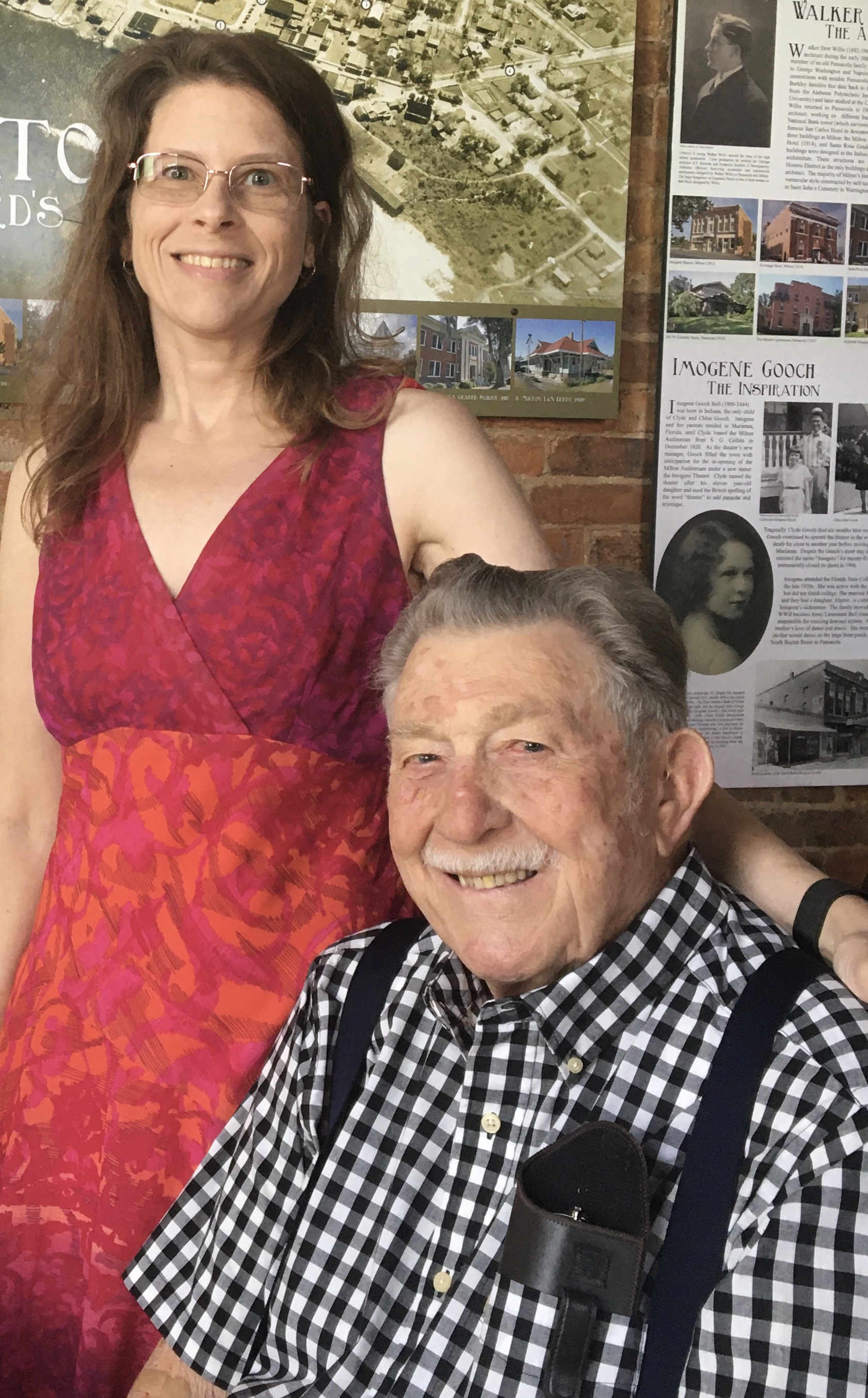 VIRTUAL AUTHOR VISIT WITH DANA SKORNIA VIRTUAL AUTHOR VISIT WITH DANA SKORNIA
Dana Skornia lives in Jacksonville, FL with her husband and two children, and this is her first venture into writing fiction. She wrote the book with her father, JL Broxson, who lives in Milton, FL, where Dana and most of her relatives are from. She and her father have always been interested in the family history and genealogy of the Broxson family, and he’s always told her stories of the many people who have graced their heritage and of the friends who made their lives interesting fodder for the book.
X
X
Blog URL: https://awinterssecrets.blogspot.com/
Goodreads: https://www.goodreads.com/book/show/51479541-a-winter-s-secrets
X
X
About A WINTER’S SECRETS
Publication date: January 2020
Publisher: Kindle Direct Publishing
Genre: Historical Fiction
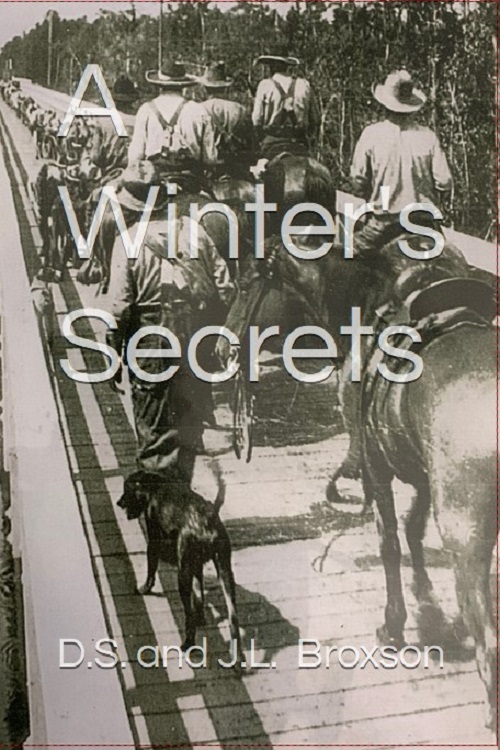 This is a post-Civil War family saga, based loosely on the author’s ancestral heritage and other historical accounts of rural life in Florida after the slaves had been freed. The story follows the emotional journeys of each person involved in a love triangle and develops gracefully and powerfully as they adapt to each other, and come to terms with new family dynamics – for better or for worse. The plot has several interesting twists, a few tense moments where things could go either way, some emotional turmoil, and many kind deeds and encouraging moments. This is a post-Civil War family saga, based loosely on the author’s ancestral heritage and other historical accounts of rural life in Florida after the slaves had been freed. The story follows the emotional journeys of each person involved in a love triangle and develops gracefully and powerfully as they adapt to each other, and come to terms with new family dynamics – for better or for worse. The plot has several interesting twists, a few tense moments where things could go either way, some emotional turmoil, and many kind deeds and encouraging moments.
A Winter’s Secrets has been submitted to Florida Writer’s Association Royal Palm Literary Awards Competition
Buy the book: A Winter’s Secrets
Reedsy: https://reedsy.com/discovery/book/a-winter-s-secrets-d-s-j-l-broxson
Amazon: https://www.amazon.com/Winters-Secrets-D-S-J-L-Broxson-ebook/dp/B084796RQT/ref=sr_1_3?dchild=1&keywords=a+winters+secrets&qid=1587845529&sr=8-3
Barnes & Noble: https://www.barnesandnoble.com/w/a-winters-secrets-jl-broxson/1136126633?ean=9781078779517
X
X
X
Interview with Dana Skornia
Why did you start writing —what triggered your writing?
Dad called me one day and asked if I had a novel in me, and I said I thought I did. He and I have always been interested in the histories of the people in our heritage and he’s told me many stories over the years about how he grew up, people he knew, and what their lives were like. We agreed that I’d record him telling about those stories, and I used them to create a fictional tale, using many of the circumstances but envisioning what might have been, and crafting a plot and story line around them.
What does the act of writing bring into your life? Why do you want to write?
In the beginning I had an audience of one, because the only person I was writing for was Dad. I wanted him to have a story that he would enjoy reading, one that would have meaning and relevance for the time and people that he grew up knowing, and would resonate with what he knew to be true about the era and the people who lived in the early 1900s. As I continued I hoped it would be one that anyone might enjoy, and I wanted to share the story with others.
How long did it take you to write your book? How many rewrites did it go through?
I sent chapters to Dad as I finished them, and it took a few re-writes of the first three or four chapters to really feel as though I had something worth continuing. Once I got started, though, I found that the characters didn’t always behave the way I thought they should, but they also became more real to me as I started fleshing them out and determining who they really were.
Is this your first book? Your first fiction book?
This is the first book I’ve ever tried to write, although many people have told me I need to write a book and I had a blog going for a few years when my children were younger. I enjoyed writing it and wish I could afford to do nothing but write, as I thoroughly enjoyed the process and feel like I’ve got a few more “novels” in me.
Tell us an interesting fact or hidden secret about one of the characters that we wouldn’t know by reading the book.
When my father was young he had an aunt that would tease him and call him little Lester Leroy, and Dad always found that a little funny and a little offensive at the same time, and I knew at the end I wanted to make him laugh, so I put the conversation between Bud and Annie in the book about naming the baby that. Also, when I describe the nativity play that the children put on at Christmas time, I made a reference to a play in years past where the angel was stuck in the tomb and couldn’t get out.
That actually happened to my husband Dallas when he was a teenager in a church play, where the wings he was wearing were too big to get through the opening of the “tomb” they had constructed on stage and from where he was supposed to emerge and sing a song. Unfortunately for him he had to stay hidden in the tomb and just sing the song from where he was stuck, and it’s something he’s laughed about ever since.
Sunday, May 03 2020
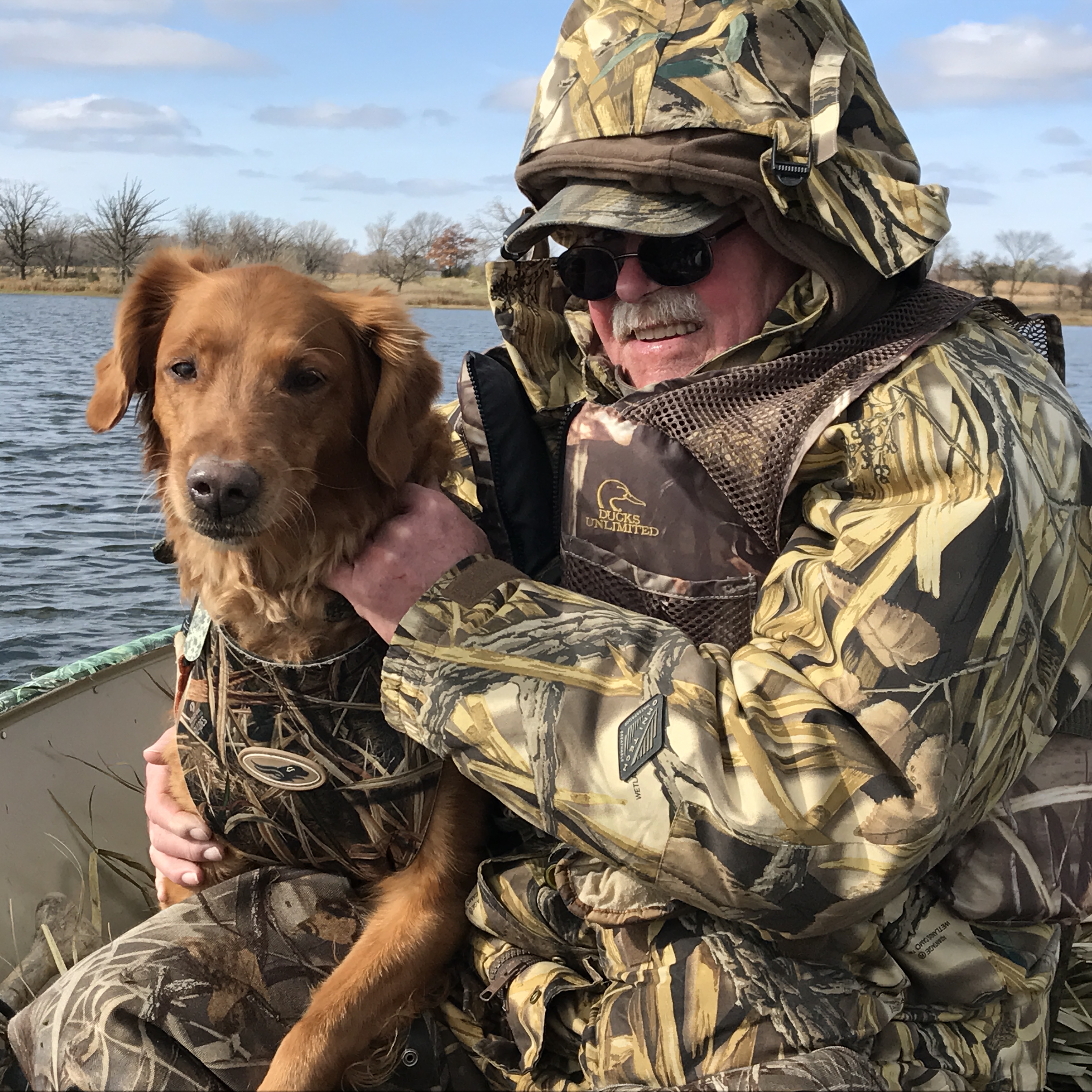 Christopher G. Bremicker was a Green Beret medic stationed at Ft. Bragg NC from 1968 to 1970. He has a BA in English and a Master’s in Business Administration, both from the University of Minnesota. He is a newspaperman, downhill skier, and grouse hunter. He plays handball and reviews theater. He is a sales associate at Walgreen’s in St. Paul, MN, his forty-sixth job since high school. His hometown is Cable, WI. He has won awards from Veterans Voices Writing Project Inc. from the VFW, and the American Legion. Christopher G. Bremicker was a Green Beret medic stationed at Ft. Bragg NC from 1968 to 1970. He has a BA in English and a Master’s in Business Administration, both from the University of Minnesota. He is a newspaperman, downhill skier, and grouse hunter. He plays handball and reviews theater. He is a sales associate at Walgreen’s in St. Paul, MN, his forty-sixth job since high school. His hometown is Cable, WI. He has won awards from Veterans Voices Writing Project Inc. from the VFW, and the American Legion.
X
X
Website URL: http://www.unsolicitedpress.com/store/p274/Bremickermemoir.html
Blog URL: www.livingwellwhilementallyill.com
Facebook: https://www.facebook.com/cbremicker
YouTube: https://youtu.be/hnmfAK9L0qQ
XX
XX
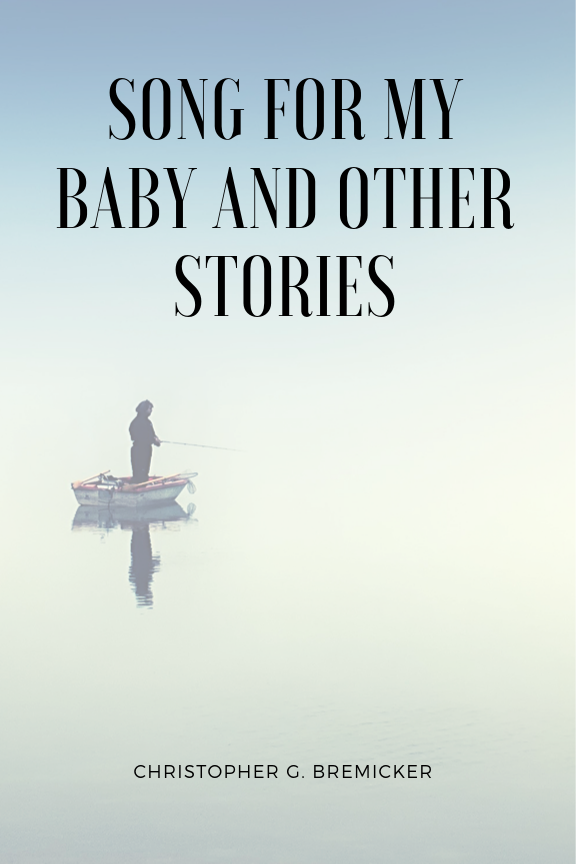 About Song for My Baby and Other Stories About Song for My Baby and Other Stories
Publication date: June 16, 2020
Publisher: Unsolicited Press
Genre: Hybrid, fiction, nonfiction, memoir
Song for My Baby and Other Stories is best described as a work with great variety. What begins with the sudden demise of a father on a hunting trip, transforms into a collection that deals with mental illness, hitting bottom, and an appreciation for those who stick around in the worst of times. Bremicker takes readers for a ride with no degree of certainty. From a high stakes golf game to pay off a son’s cocaine debt, a dating service that results in twelve dates in twelve months, a kidney transplant, a heart attack, a relapse on alcohol, to years in and out of psych wards and veterans’ homes, the book shifts gears from story to story.
Buy the book: Song for My Baby and Other Stories
Unsolicited Press: www.unsolicitedpress.com
X
X
X
Interview with Christopher G. Bremicker
What does the act of writing bring into your life? Why do you want to write?
I don’t want to write. I can’t help it. At a dinner party, James Thurber’s wife looked at him and told him to stop writing. I’m like that. I do it subconsciously.
Do you have a favorite writing space or a place you go to for inspiration?
I need to be around people to write, like a coffee shop or the community room in my hi-rise. Many writers like to write in solitude. I can’t stand it. I draw energy from a crowd and concentrate better when there’s commotion.
Do you have any writing totems? Superstitions? Strange routines?
I never talk about work in progress. It’s bad luck and invariably kills the story and the creative juices. I won’t even tell my psychologist. I’ve experimented with this theory and it’s true. I keep my mouth shut.
What is your most recent book and what inspired it?
Song for My Baby and Other Stories—inspired by my recovery from a heart attack and mental illness. It is a compilation of stories that a Dutch journalist and friend of mine liked. He was knighted by the Queen of Holland for his work also as a literary critic and his judgment is impeccable. I am highly prolific, and the book is my best stuff.
What is the message of your book? What do you want readers to come away with after they read your book?
Mental illness can be overcome with hobbies that give a person a life worth living. You’re living in Hell, might as well enjoy it and have something to look back on, if you ever make it to a semblance of health.
Tell us an interesting fact or hidden secret about one of the characters that we wouldn’t know by reading the book.
The greatest handball player in the world is me. I’m the worst player in our handball league but have the greatest of the game’s personality. Booze, women, and cigarettes, although I quit all three.
Saturday, April 18 2020
April's Round Robin Blog Hop topic: How easy or difficult do you find including humor in your writing and/or have you ever incorporated a true life humorous vent in your own life or the life of someone you know in a book you were writing?
XXX
 Humor is a part of human life so it’s just natural for it to find its way into our writing in so many ways. Some of us are just blessed with a humorous nature – you know the guy who always has the right quip or comment at the right time to tickle everyone’s funny bones? Some of us have moments when we say or do something truly funny. But all of us appreciate humor from slapstick to subtle. And just think how awful life would be without it. Even on our darkest days, amidst the worst that life throws at us, humor can lighten the load and help us appreciate the good that comes our way. Right now, amidst this unprecedented and scary lockdown for Covid19 people are posting humorous gifs and memes to social media that help us all find something to laugh about. So, if this is real life, it just stands to reason we would want to incorporate humor into our stories. Humor is a part of human life so it’s just natural for it to find its way into our writing in so many ways. Some of us are just blessed with a humorous nature – you know the guy who always has the right quip or comment at the right time to tickle everyone’s funny bones? Some of us have moments when we say or do something truly funny. But all of us appreciate humor from slapstick to subtle. And just think how awful life would be without it. Even on our darkest days, amidst the worst that life throws at us, humor can lighten the load and help us appreciate the good that comes our way. Right now, amidst this unprecedented and scary lockdown for Covid19 people are posting humorous gifs and memes to social media that help us all find something to laugh about. So, if this is real life, it just stands to reason we would want to incorporate humor into our stories.
XXX
 For those blessed with the funny bone writing humor is easy. For the rest of us, not so much, but one thing most authors are good at is people watching. And that’s where you can find great ideas to weave into your stories. The ridiculous things people say in the heat of an argument, mishaps on the way to saying or doing something serious that totally derail the effort, things our pets do that bring a grin to our faces. All these things add spice to our lives and can enrich our stories. For those blessed with the funny bone writing humor is easy. For the rest of us, not so much, but one thing most authors are good at is people watching. And that’s where you can find great ideas to weave into your stories. The ridiculous things people say in the heat of an argument, mishaps on the way to saying or doing something serious that totally derail the effort, things our pets do that bring a grin to our faces. All these things add spice to our lives and can enrich our stories.
XXX
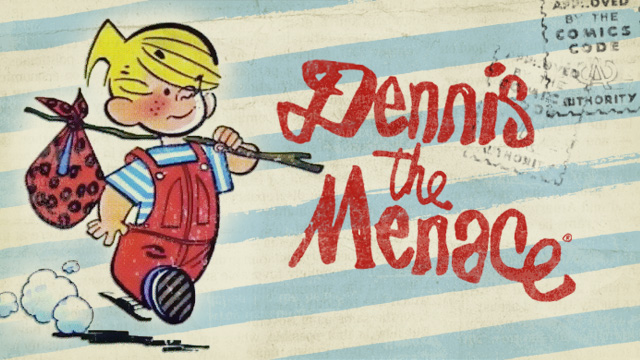 Hank Ketcham made a career out of turning the funny, amusing, downright side-splitting things his son said and did into the long-running comic strip Dennis the Menace. Several others have used kids or family life to launch their careers as well. Anyone ever read Superfudge or Tales of a Fourth Grade Nothing by Judy Blume. If you have and you have kids, I’m betting some of the things that Peter had to endure from his baby brother Fudge could have happened in your family, or events very similar. I still smile over the Hank Ketcham made a career out of turning the funny, amusing, downright side-splitting things his son said and did into the long-running comic strip Dennis the Menace. Several others have used kids or family life to launch their careers as well. Anyone ever read Superfudge or Tales of a Fourth Grade Nothing by Judy Blume. If you have and you have kids, I’m betting some of the things that Peter had to endure from his baby brother Fudge could have happened in your family, or events very similar. I still smile over the  image of Peter sticking green stamps all over Baby Fudge to trade him in for something better. Bill Bryson turned his real-life adventure to hike the Appalachian Trail into one of the most amusing books I’ve ever read, eventually made into the movie, A Walk in the Woods starring Robert Redford and Nick Nolte. Reader’s Digest features two regular pages of humor taken from real life. Humor in Uniform shows the lighter, funnier side of military life while Life in These United States retells true funny stuff from every walk of life. image of Peter sticking green stamps all over Baby Fudge to trade him in for something better. Bill Bryson turned his real-life adventure to hike the Appalachian Trail into one of the most amusing books I’ve ever read, eventually made into the movie, A Walk in the Woods starring Robert Redford and Nick Nolte. Reader’s Digest features two regular pages of humor taken from real life. Humor in Uniform shows the lighter, funnier side of military life while Life in These United States retells true funny stuff from every walk of life.
XXX
 Since humor is so much a part of who we are as people, we need to include it, just as we need to write in the tears, tantrums, hopes, dreams, frustrations, joy, triumph and love to make our characters and their stories come alive with depth and reality. Even a character with zero sense of humor adds to that diversity – the old grump who lives on the corner, never smiles and spends his days yelling at Since humor is so much a part of who we are as people, we need to include it, just as we need to write in the tears, tantrums, hopes, dreams, frustrations, joy, triumph and love to make our characters and their stories come alive with depth and reality. Even a character with zero sense of humor adds to that diversity – the old grump who lives on the corner, never smiles and spends his days yelling at 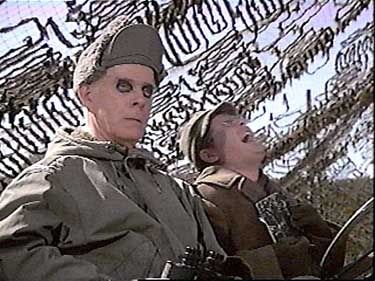 kids just for having a good time, or the boss who never sees anything even remotely funny about life at the office. Those contrasts add depth to both the characters and the story. Think about the serious TV shows you watch. Law Enforcement at all levels, lawyers arguing cases in court, doctors and nurses saving lives or firemen and other first responders in life or death situations – there are always moments of humor, even in drama. The perennial favorite, M.A.S.H. was all about the humor even while Alan Alda as Hawkeye Pierce tried to make a serious point about the futility and hell of war. kids just for having a good time, or the boss who never sees anything even remotely funny about life at the office. Those contrasts add depth to both the characters and the story. Think about the serious TV shows you watch. Law Enforcement at all levels, lawyers arguing cases in court, doctors and nurses saving lives or firemen and other first responders in life or death situations – there are always moments of humor, even in drama. The perennial favorite, M.A.S.H. was all about the humor even while Alan Alda as Hawkeye Pierce tried to make a serious point about the futility and hell of war.
XXX
 I’m no stand-up comedian, but my characters occasionally take matters into their own hands and do or say things that are funny, to lighten the mood, divert attention or just to show off their personality. They even surprise me. But most of the time, I use events that happen to me or people I know. I change the names to protect the innocent or not-so-innocent, but that’s where most of the humor in my books comes from. Just the other day my grandson, who just turned four and loves to vacuum – keeping in mind he requested a Dyson cordless stick vacuum cleaner for Christmas and Santa dutifully brought one. I had sent an Easter card with sparkly confetti inside that scattered all over the floor when the card was opened. Nicky shakes his head and mutters, “Grammy just likes to make a mess.” Coming from a four-year-old that’s the kind of humor anyone can relate to, and could be used in a fictional story. Years ago, my sister and I broke into a hotel in Inverness Scotland (a whole other tale) at 4 in the morning. One of these days I am going to find a way to weave that into a plot because, while it didn’t seem funny at the time, it’s funny in the retelling. I’m no stand-up comedian, but my characters occasionally take matters into their own hands and do or say things that are funny, to lighten the mood, divert attention or just to show off their personality. They even surprise me. But most of the time, I use events that happen to me or people I know. I change the names to protect the innocent or not-so-innocent, but that’s where most of the humor in my books comes from. Just the other day my grandson, who just turned four and loves to vacuum – keeping in mind he requested a Dyson cordless stick vacuum cleaner for Christmas and Santa dutifully brought one. I had sent an Easter card with sparkly confetti inside that scattered all over the floor when the card was opened. Nicky shakes his head and mutters, “Grammy just likes to make a mess.” Coming from a four-year-old that’s the kind of humor anyone can relate to, and could be used in a fictional story. Years ago, my sister and I broke into a hotel in Inverness Scotland (a whole other tale) at 4 in the morning. One of these days I am going to find a way to weave that into a plot because, while it didn’t seem funny at the time, it’s funny in the retelling.
XXX
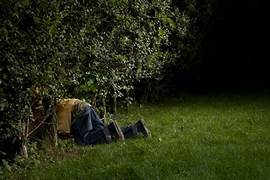 Due to the social distancing to slow the spread of Covid19 a friend of mine couldn’t spend Easter with her grandkids so she decided to sneak over to their house the night before to hide some Easter Eggs for them to find come morning. As she skulked around the yard hiding eggs it occurred to her to hope none of the neighbors saw her out there in the dark acting very suspicious and call the cops. So, you know, somewhere in Detective Jesse Quinn’s future, she’s going to end up responding to a call about an intruder and come upon a grandmother hiding eggs. Due to the social distancing to slow the spread of Covid19 a friend of mine couldn’t spend Easter with her grandkids so she decided to sneak over to their house the night before to hide some Easter Eggs for them to find come morning. As she skulked around the yard hiding eggs it occurred to her to hope none of the neighbors saw her out there in the dark acting very suspicious and call the cops. So, you know, somewhere in Detective Jesse Quinn’s future, she’s going to end up responding to a call about an intruder and come upon a grandmother hiding eggs.
XXX
 I wrote a whole blog once based on an event in my life called, The Dog Went AWOL. One of my best-read posts – I think I should start reporting more of the crazy events of my life. God knows there are plenty of them. But in the meantime, why not hop on over and check out how these authors use humor in their writing…. I wrote a whole blog once based on an event in my life called, The Dog Went AWOL. One of my best-read posts – I think I should start reporting more of the crazy events of my life. God knows there are plenty of them. But in the meantime, why not hop on over and check out how these authors use humor in their writing….
XXX
XXX
XXX
XXX
 Diane Bator Diane Bator
Beverley Bateman
Dr. Bob Rich
Connie Vines
Anne Stenhouse
Margaret Fieland
A.J. Maguire
Victoria Chatham
Judith Copek
Rhobin L Courtright
|